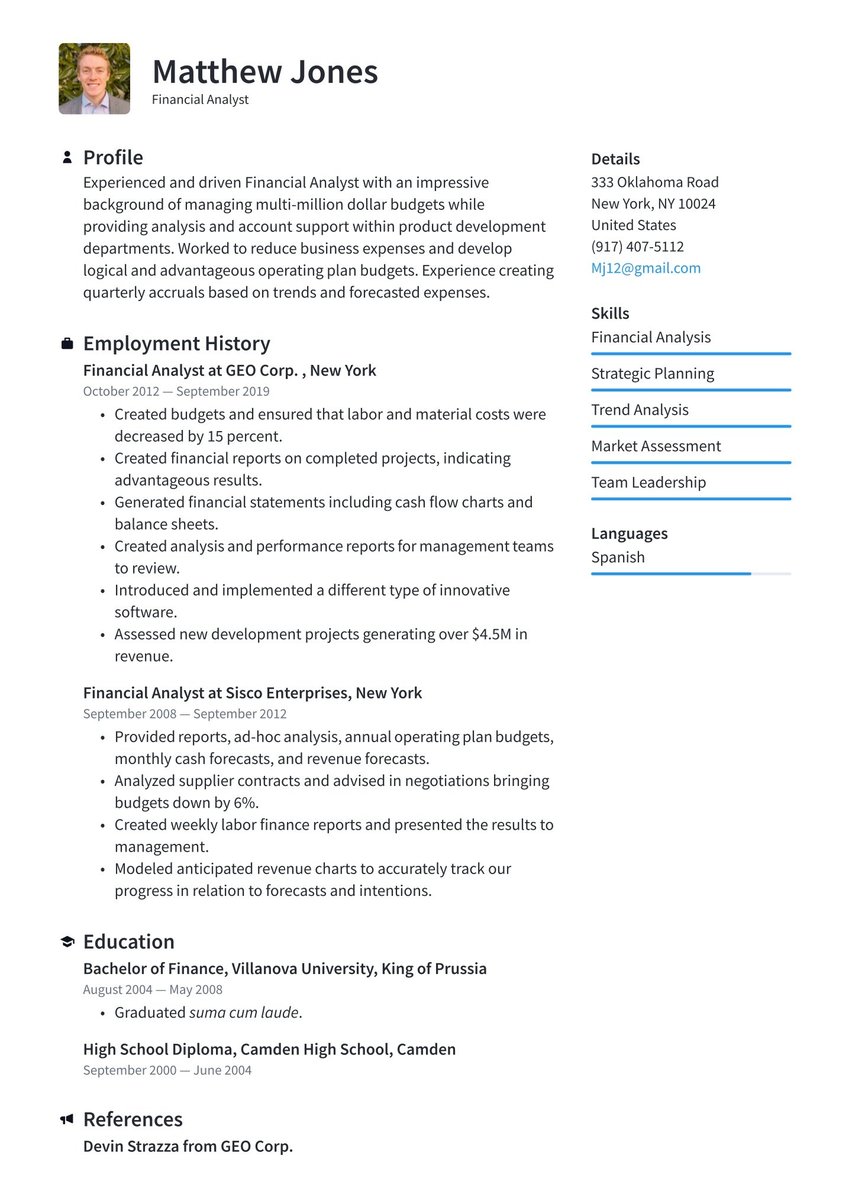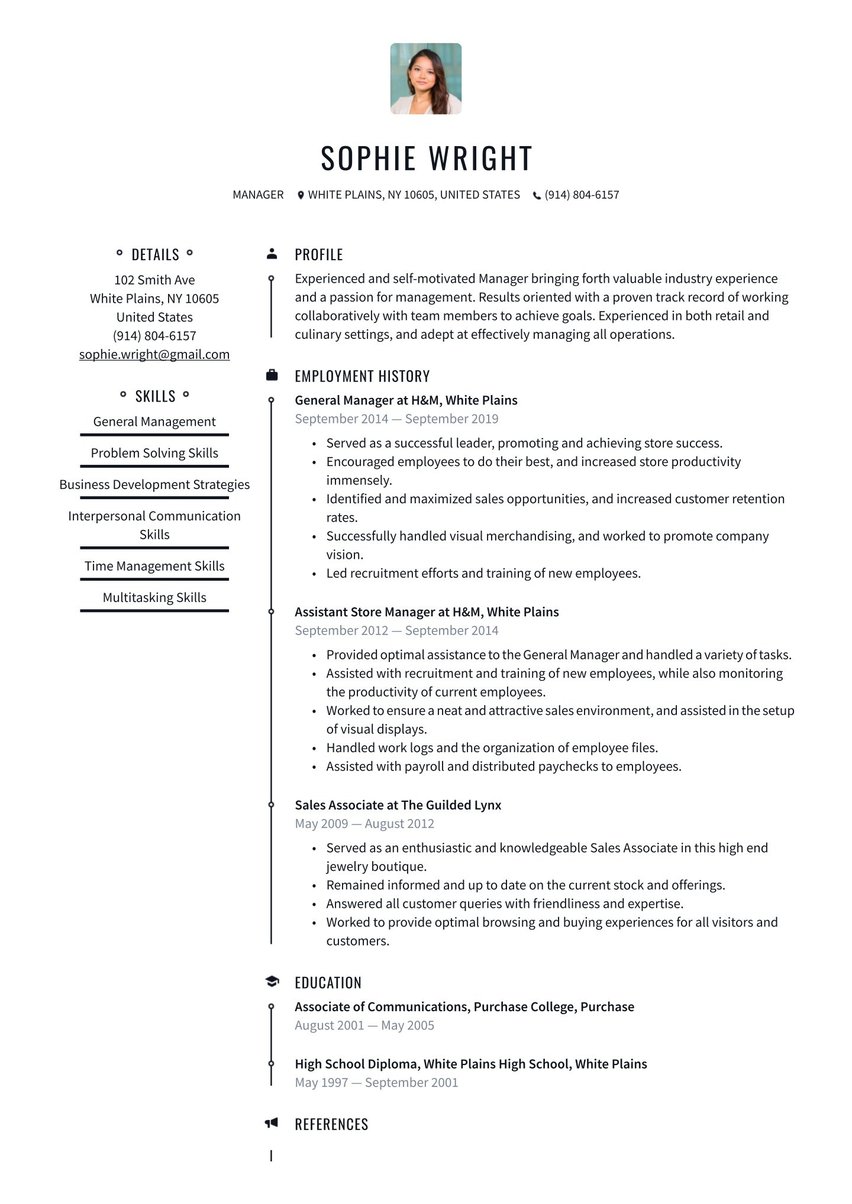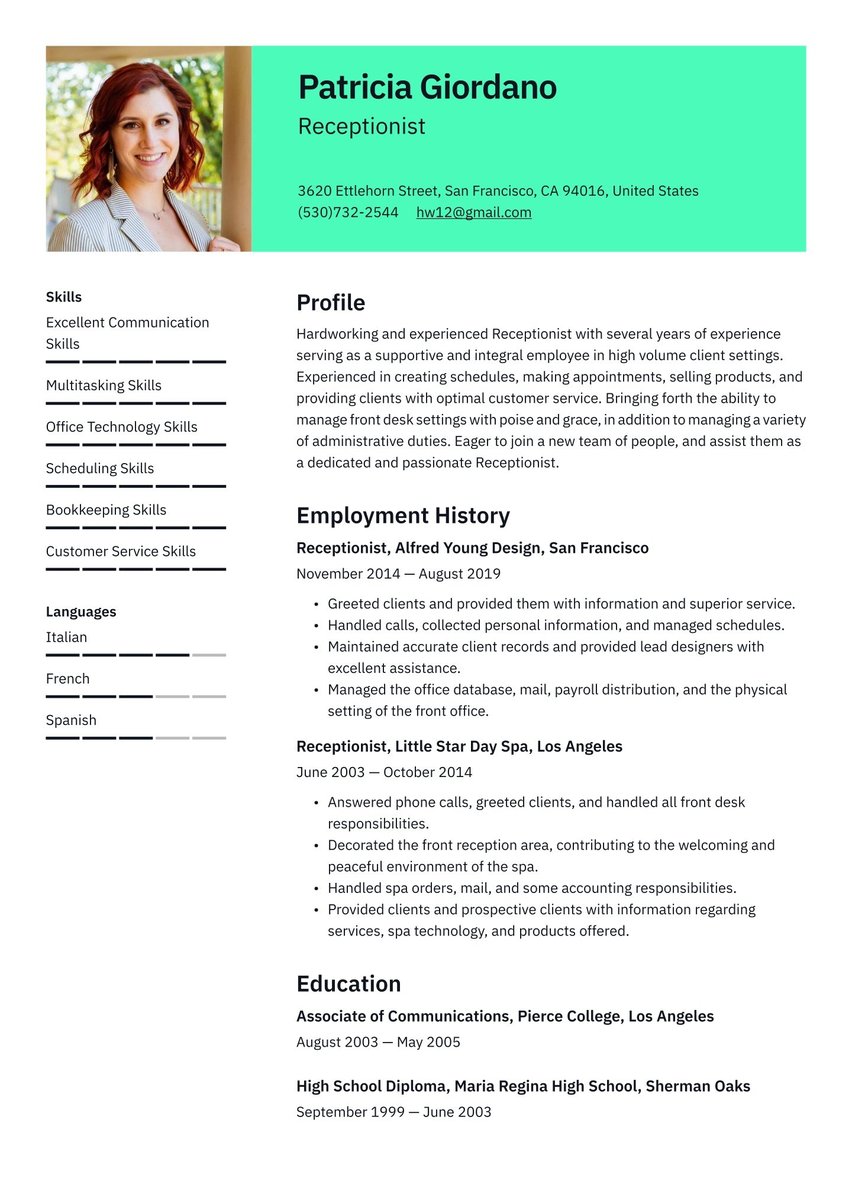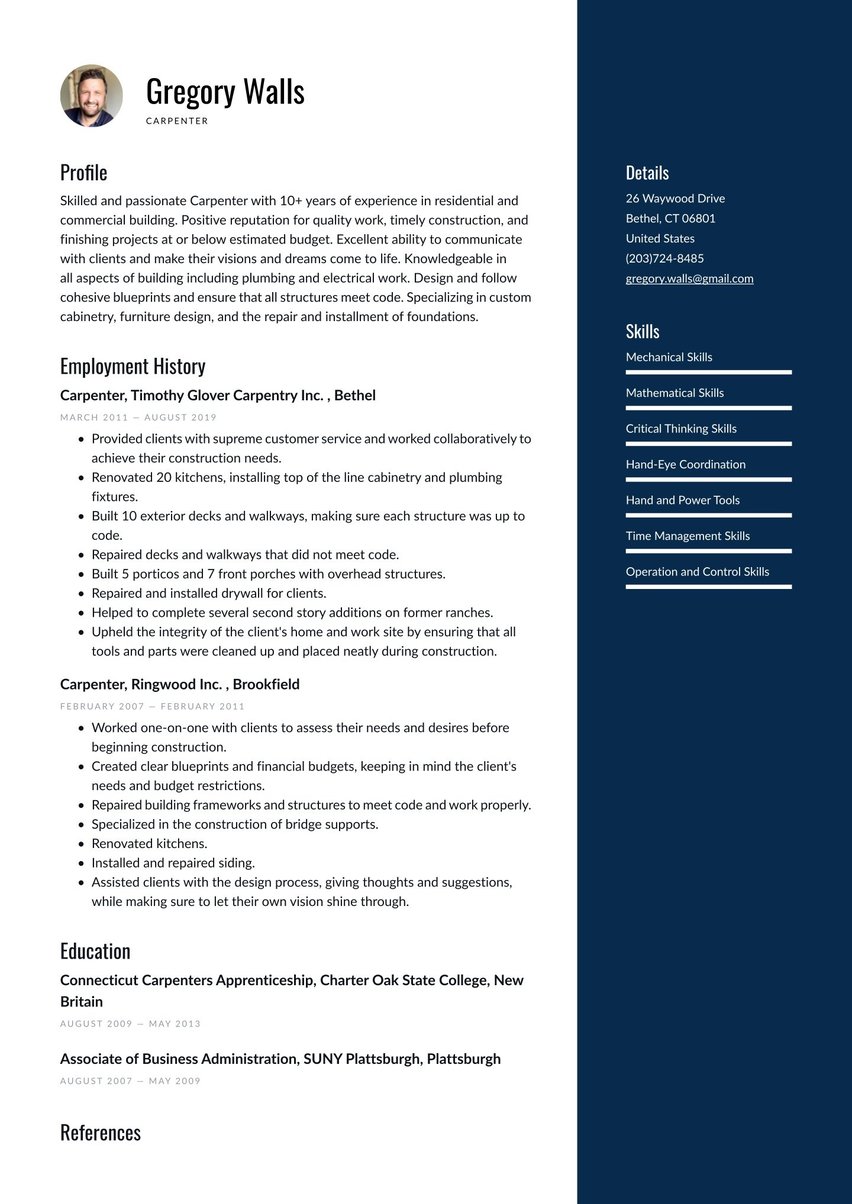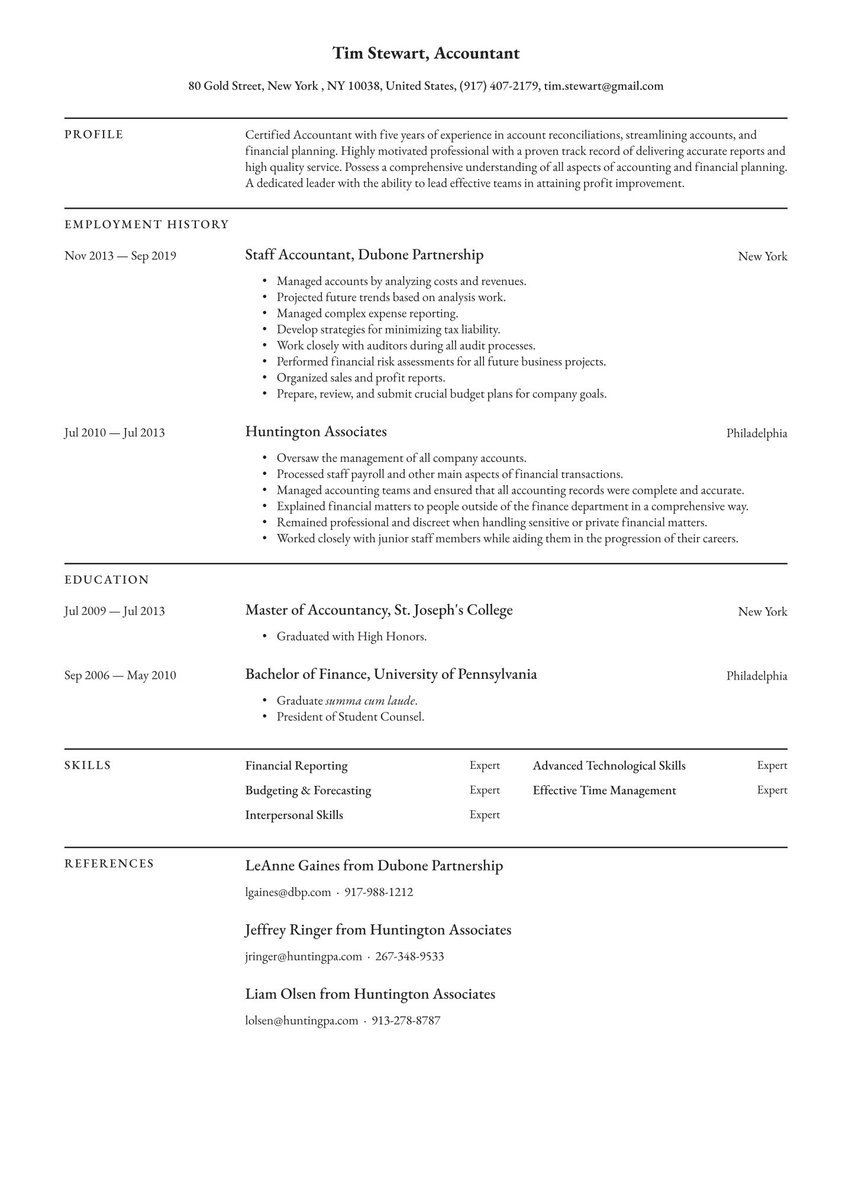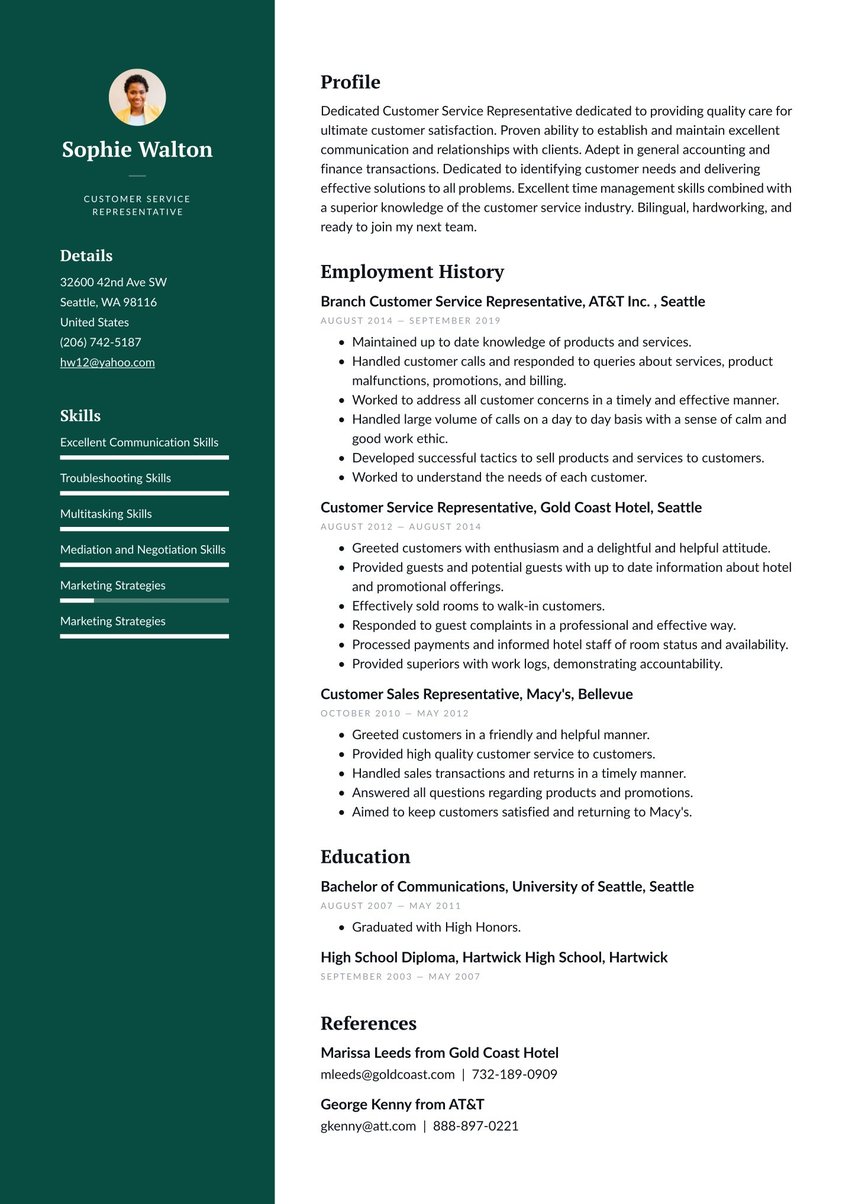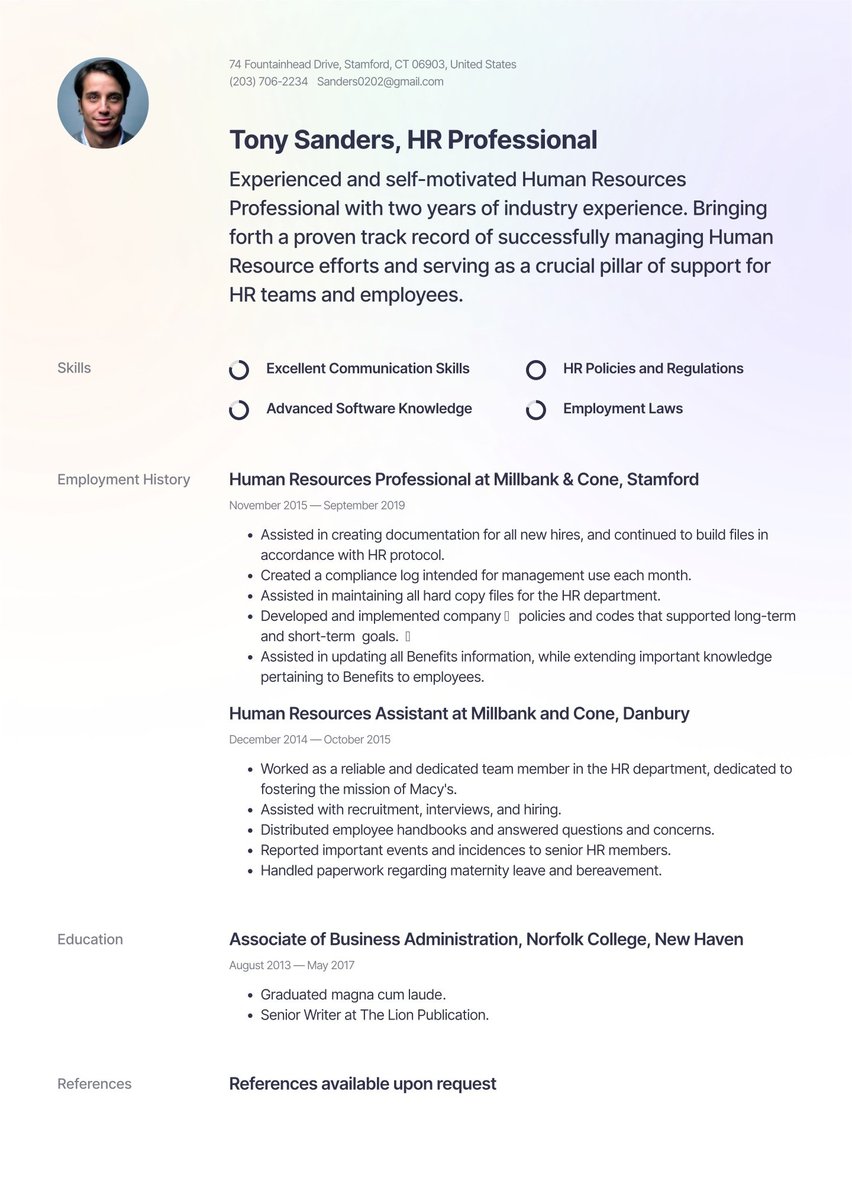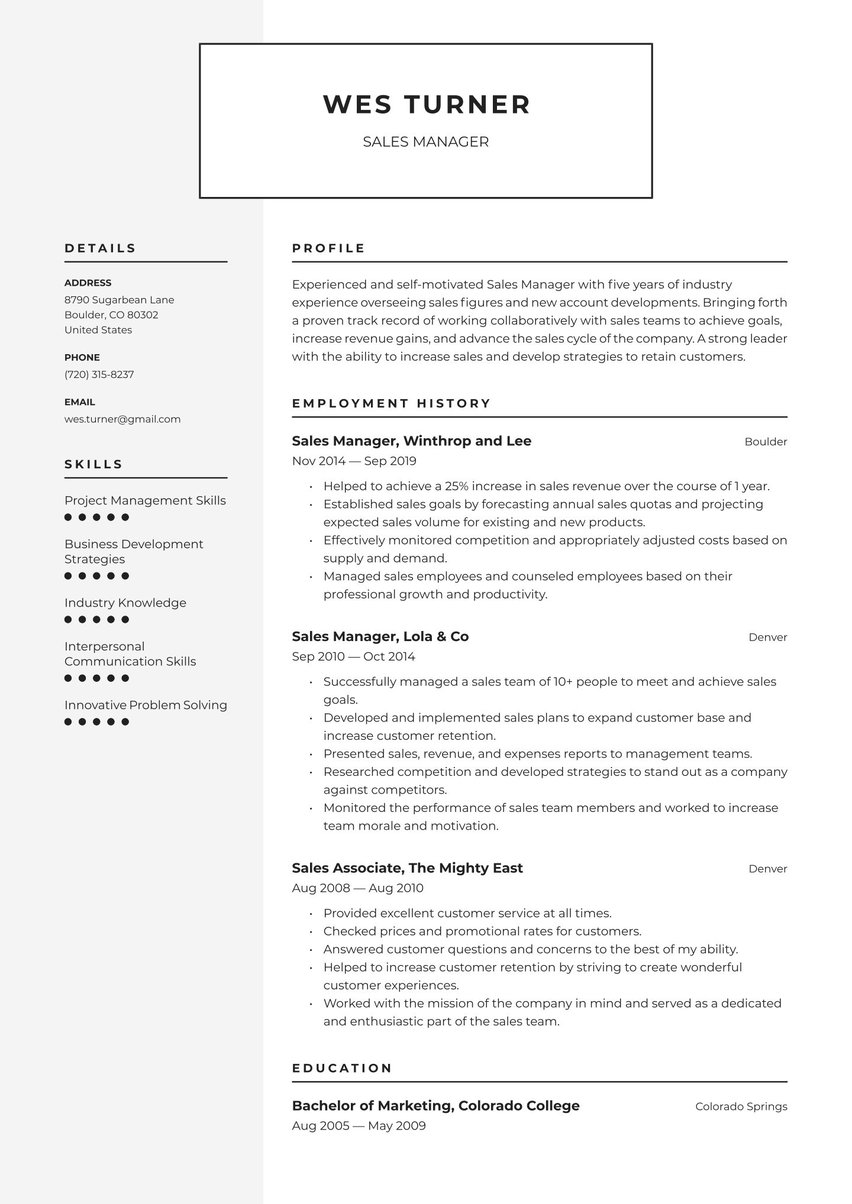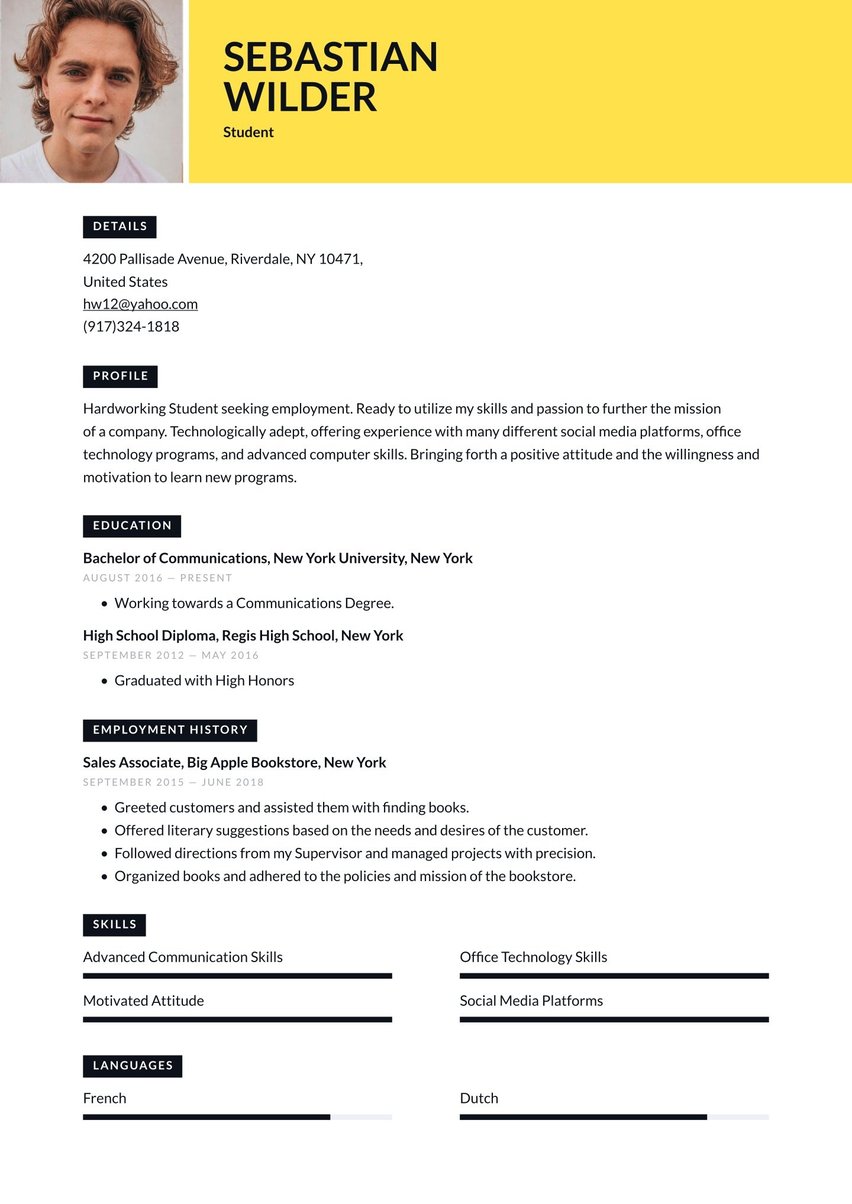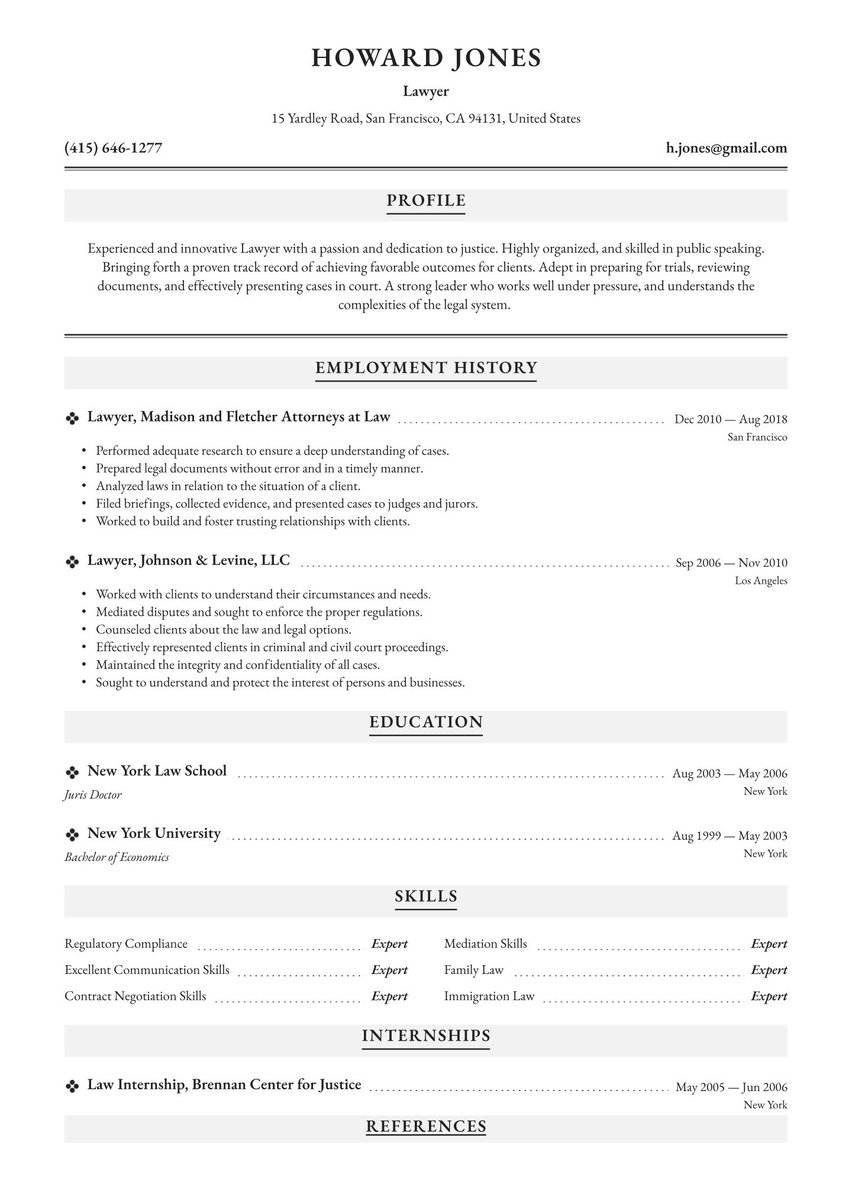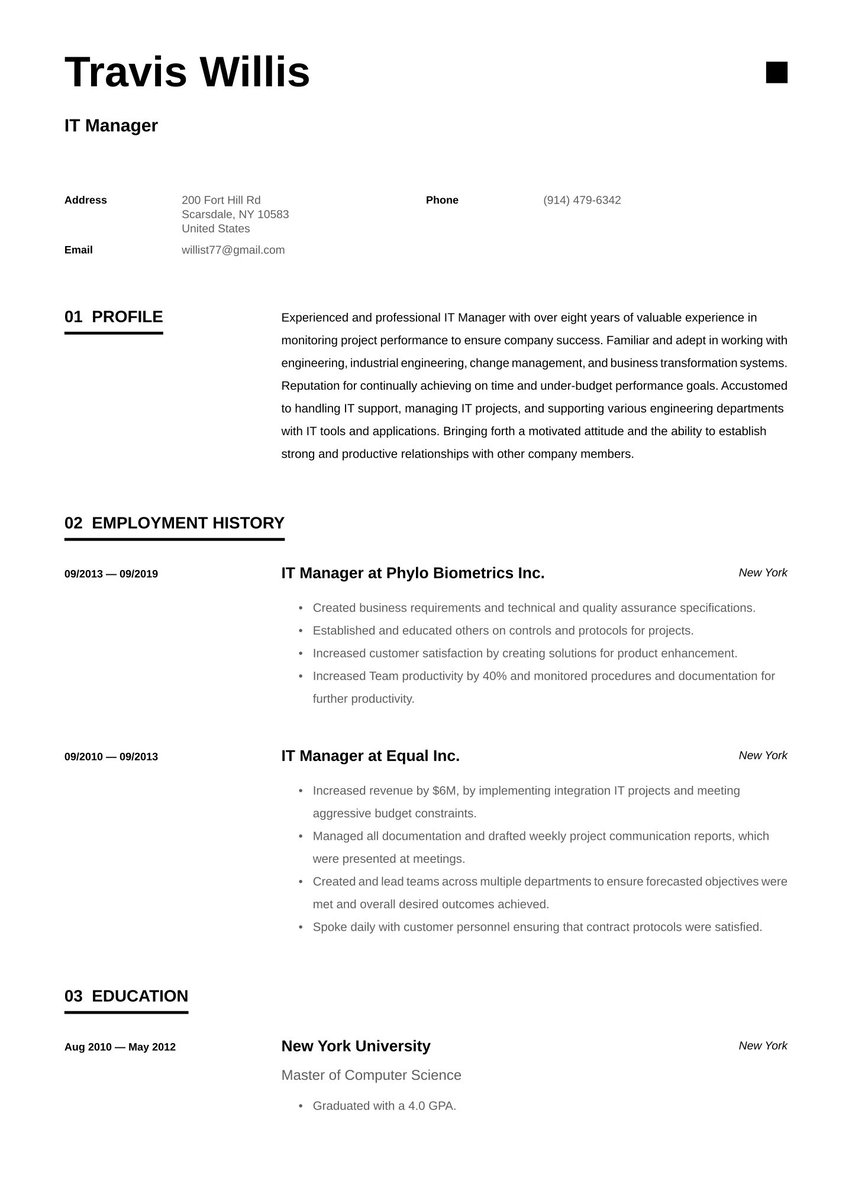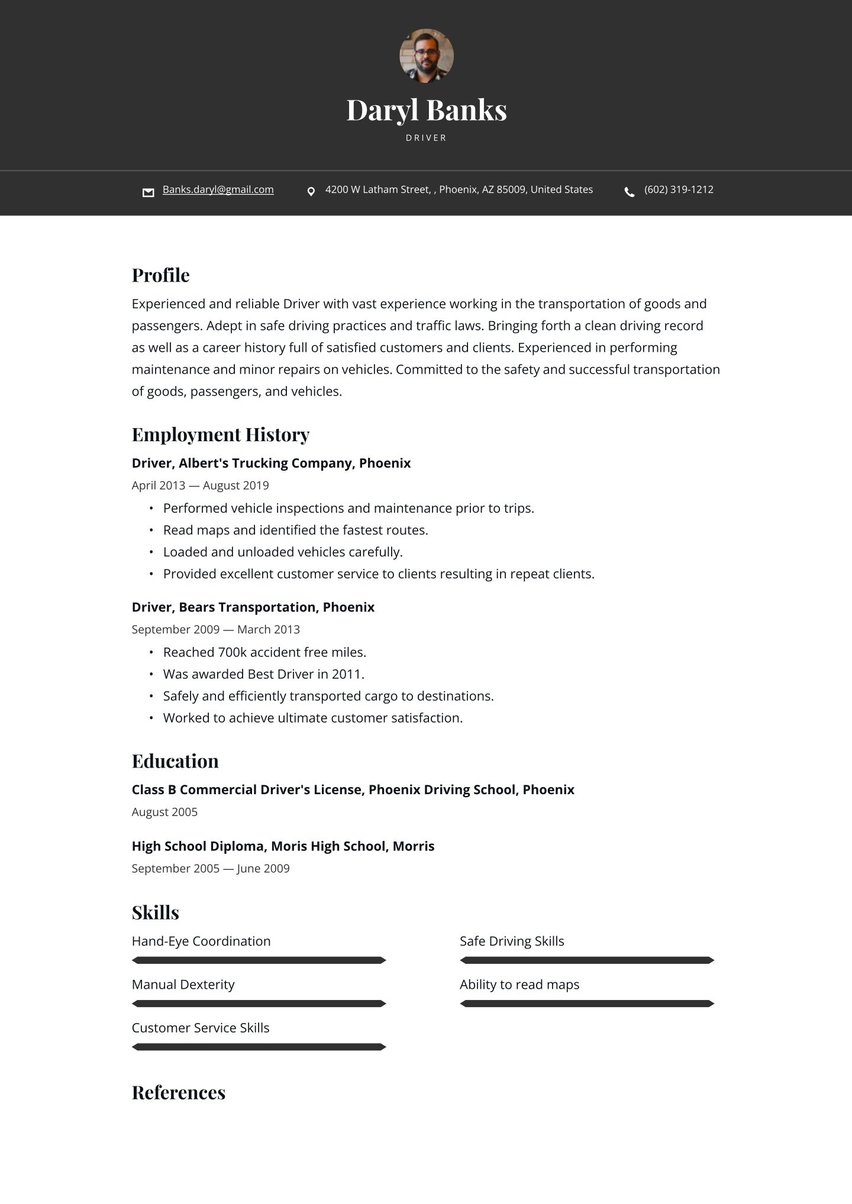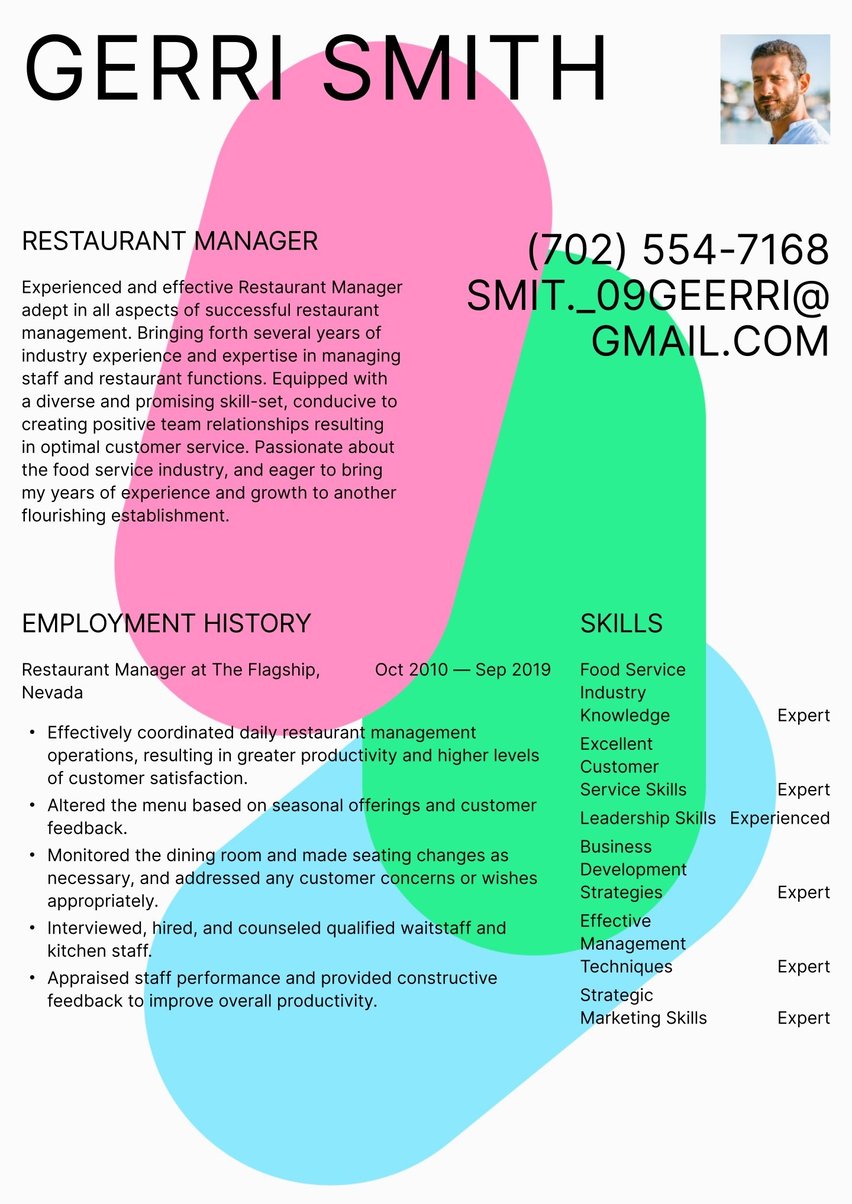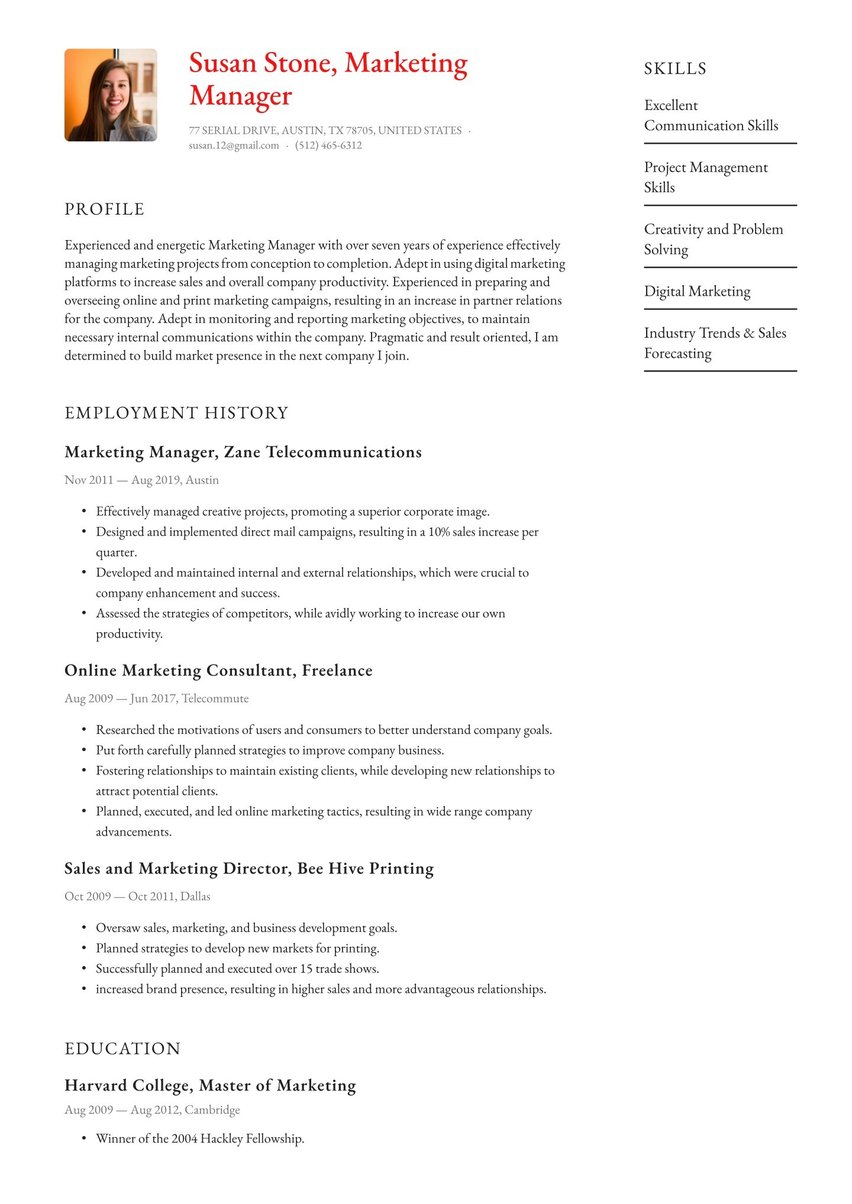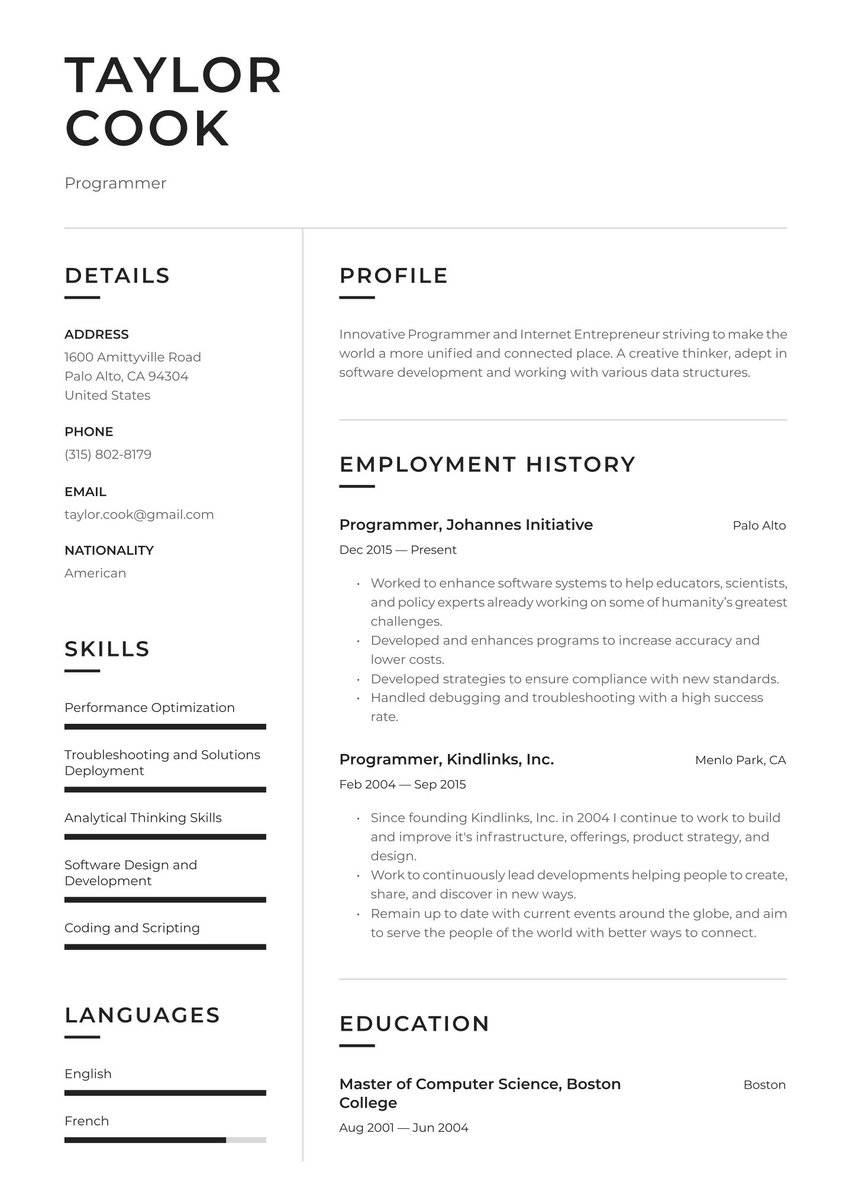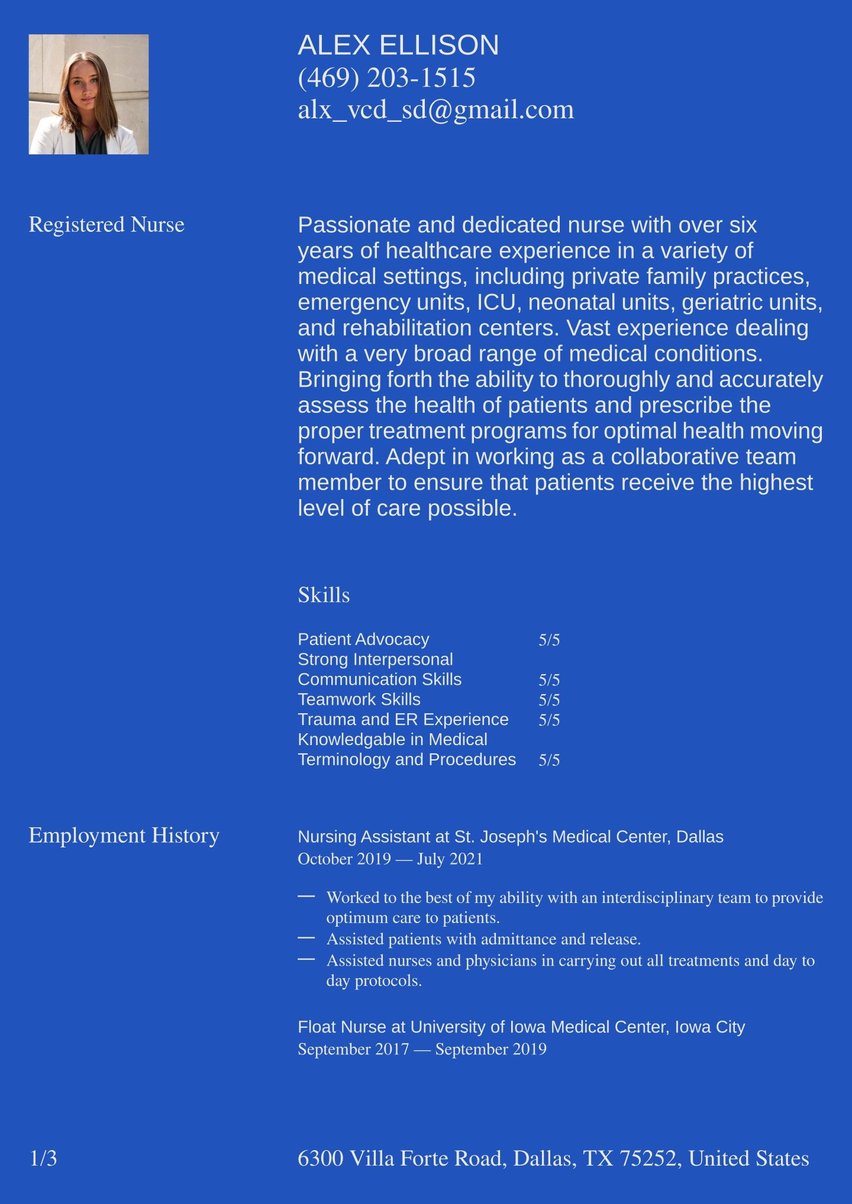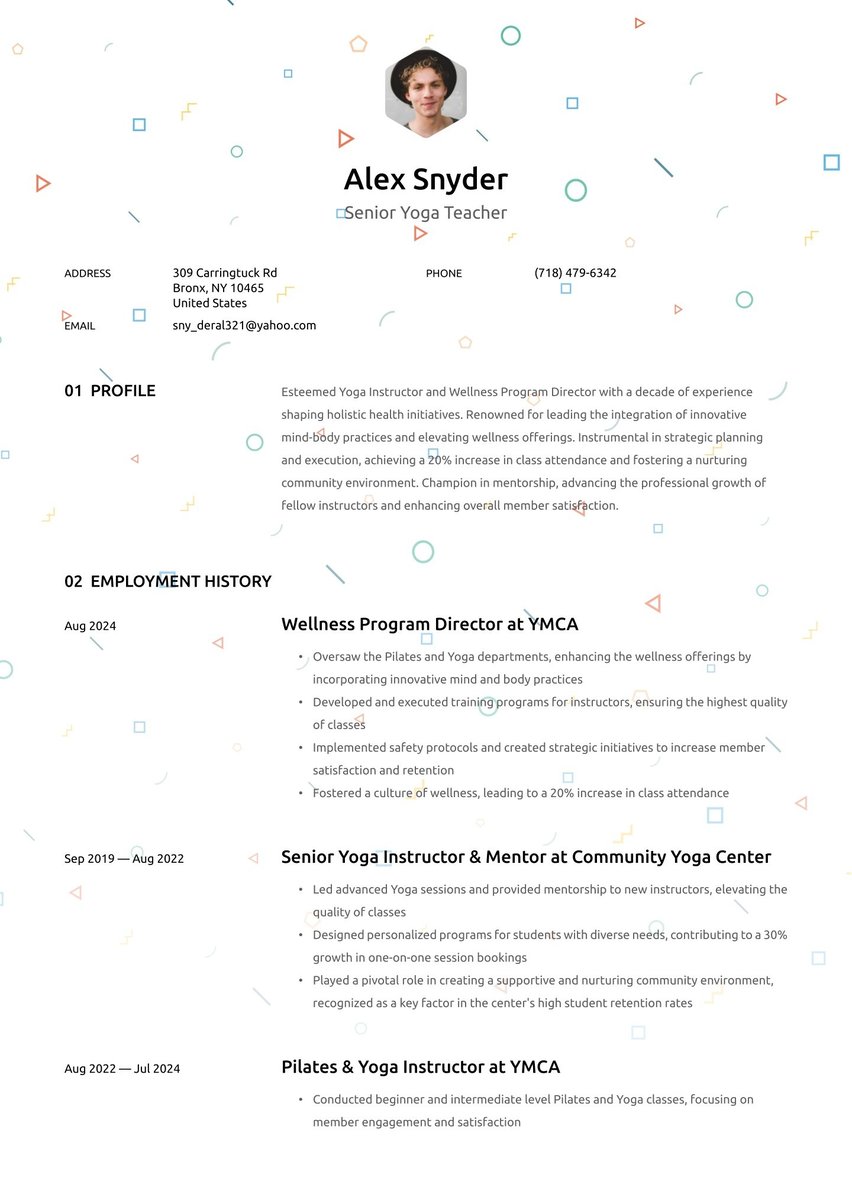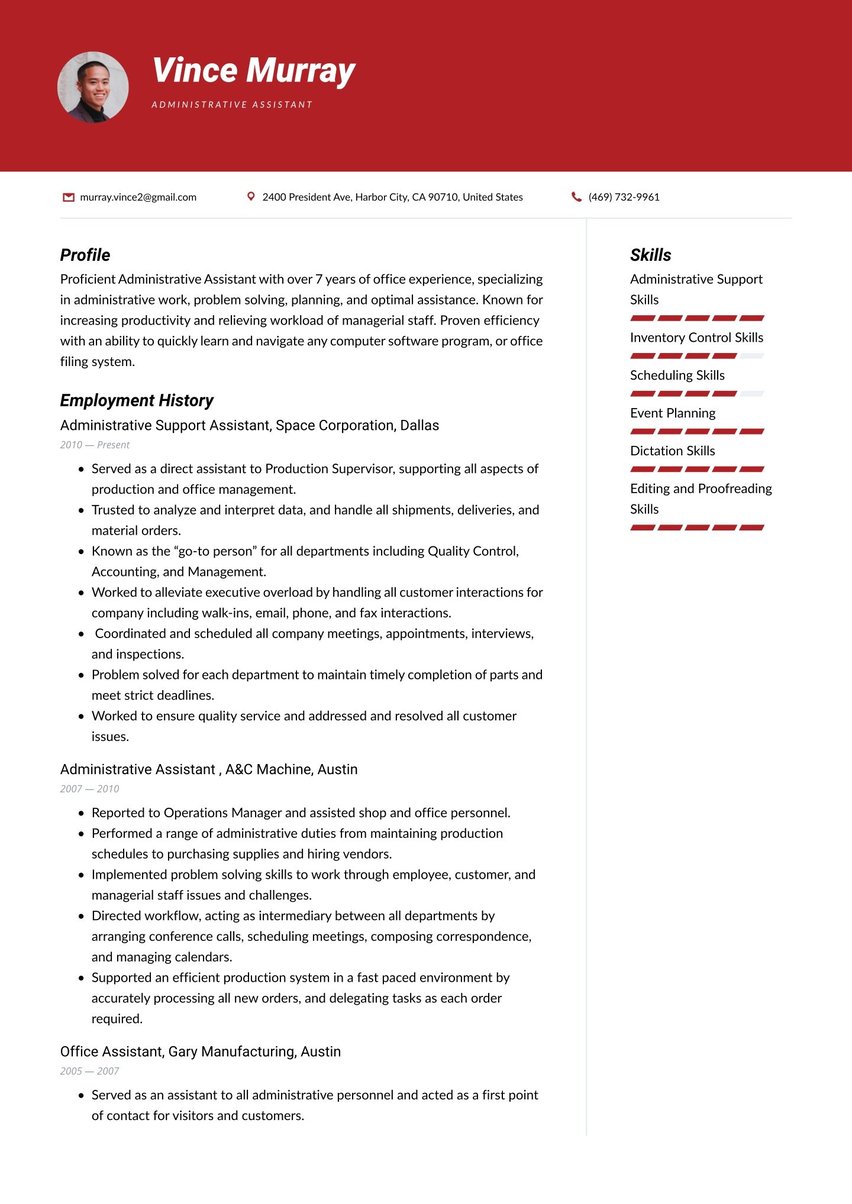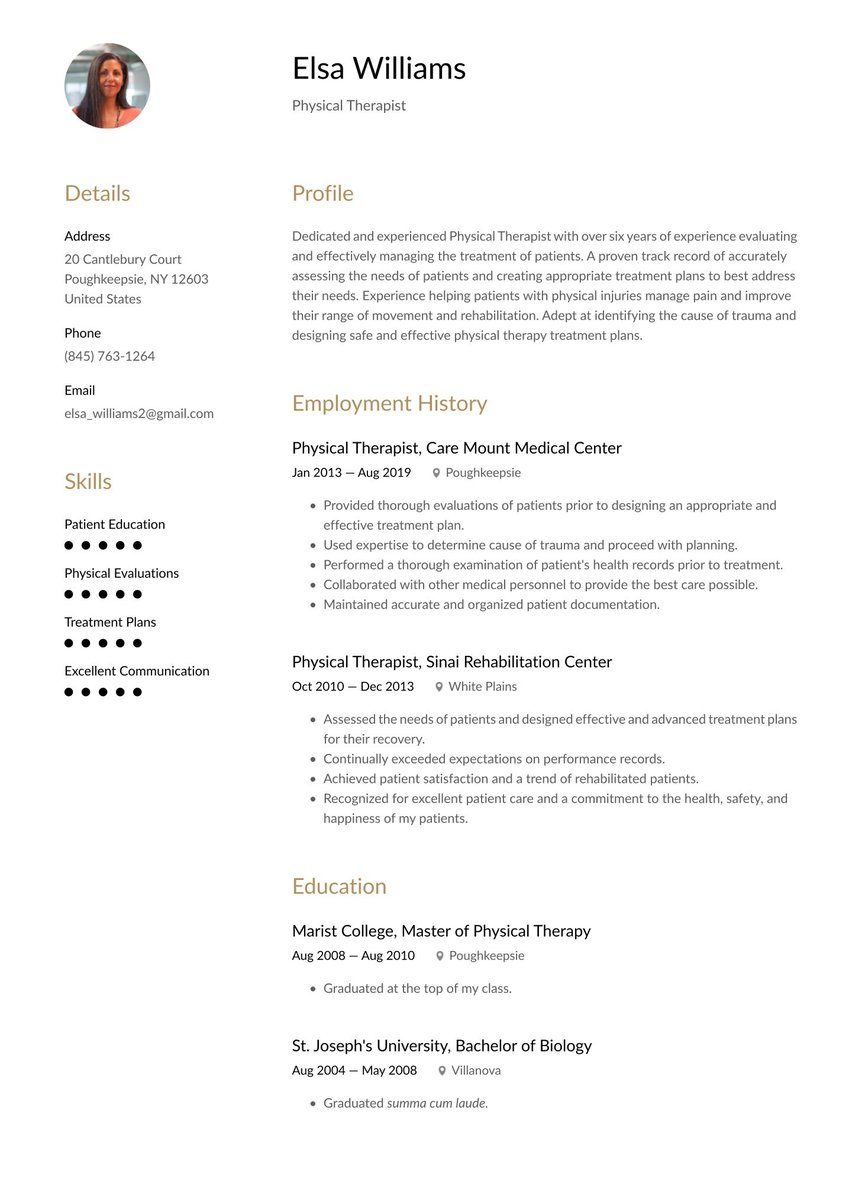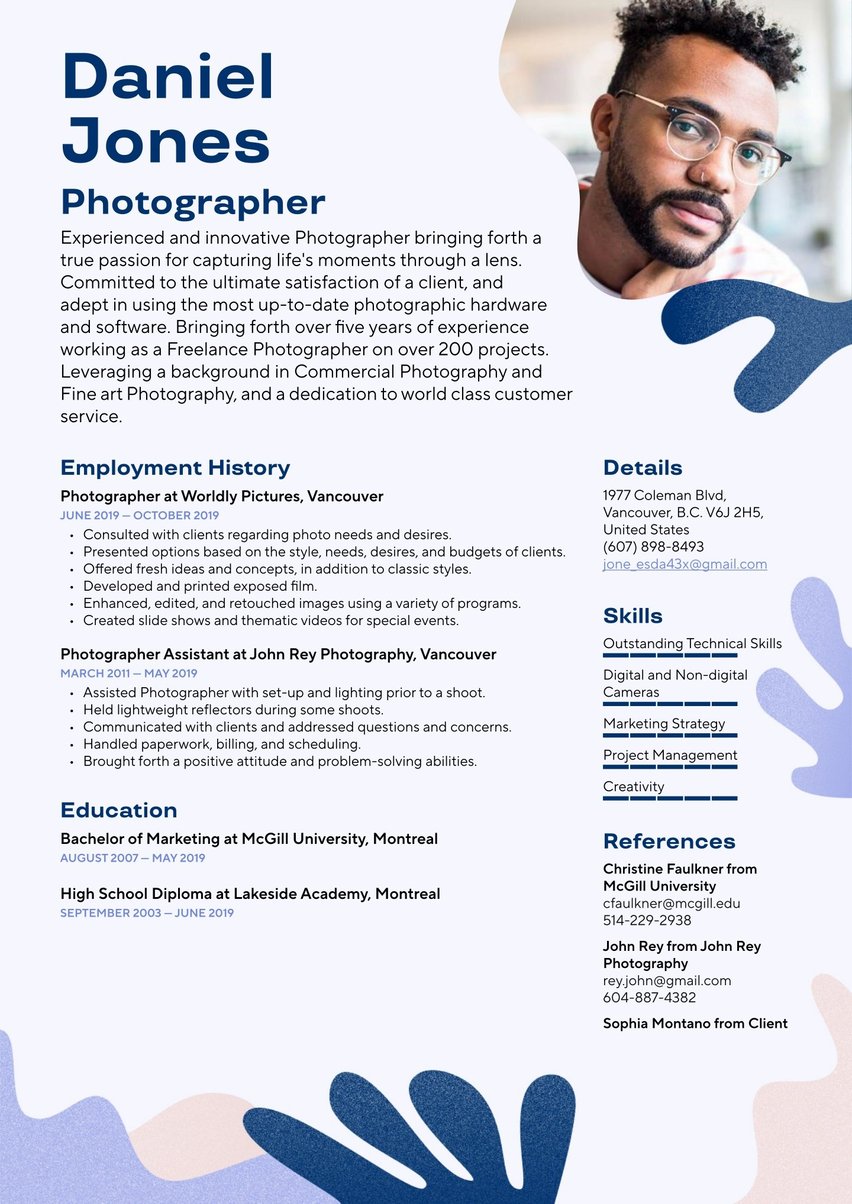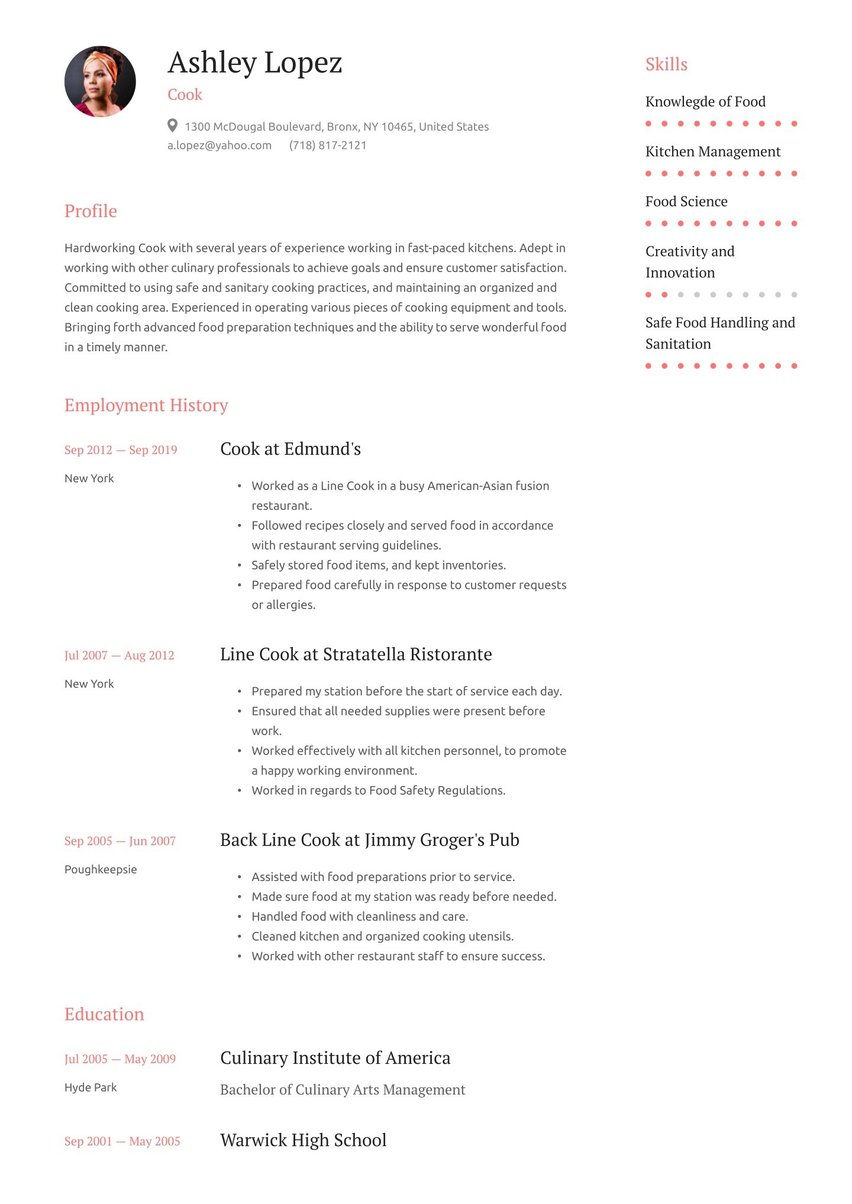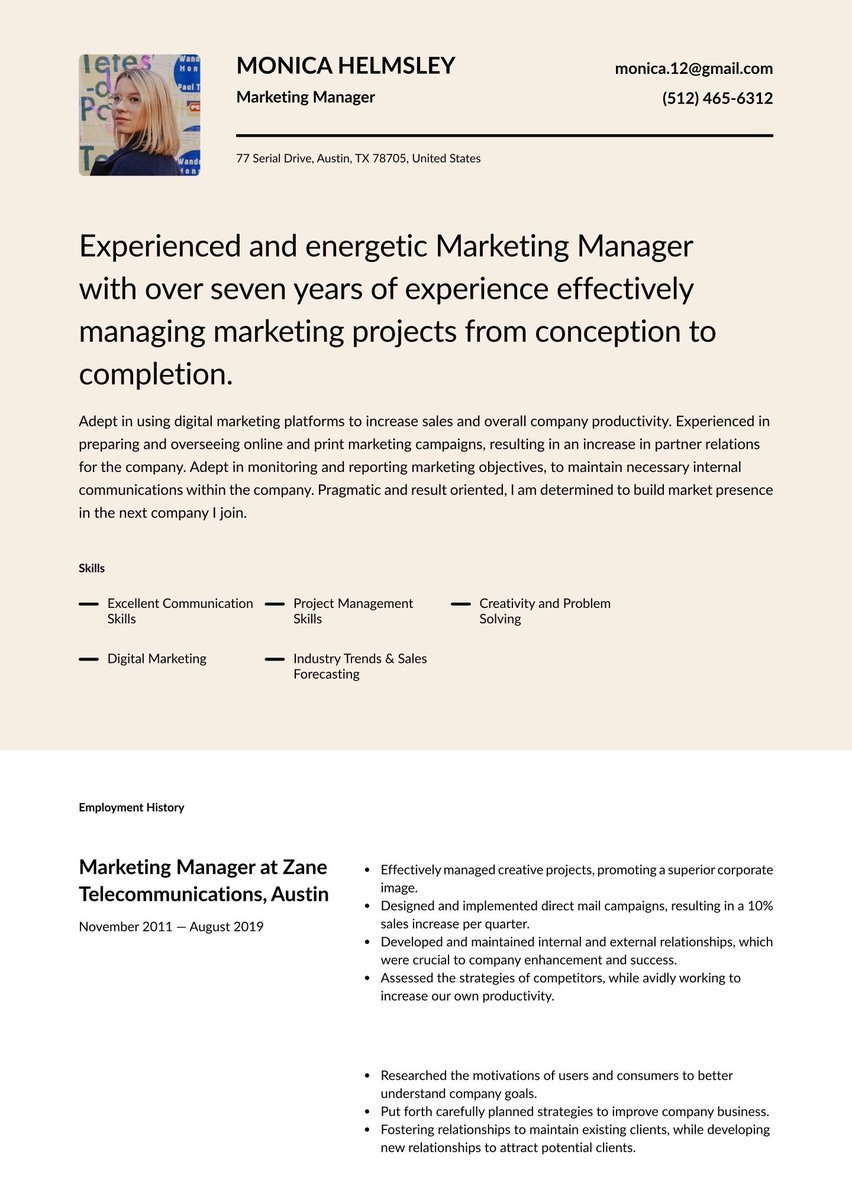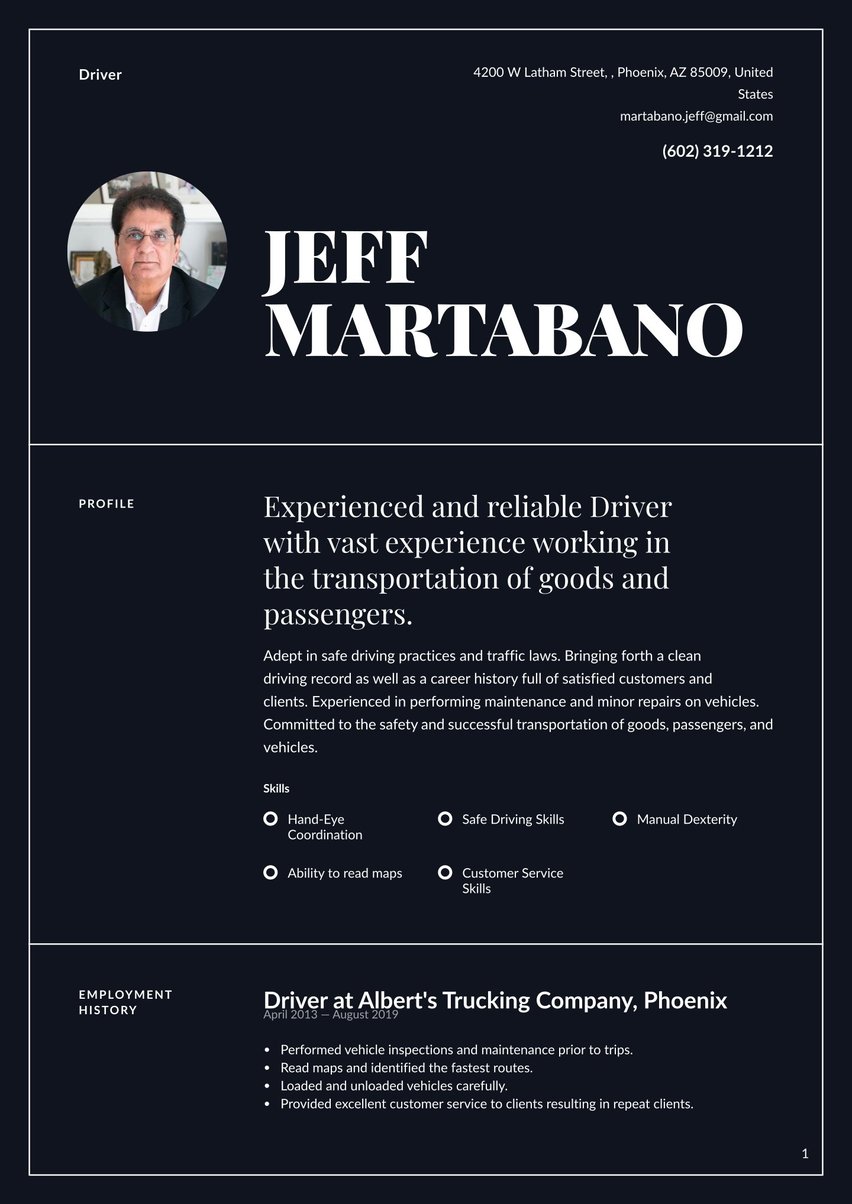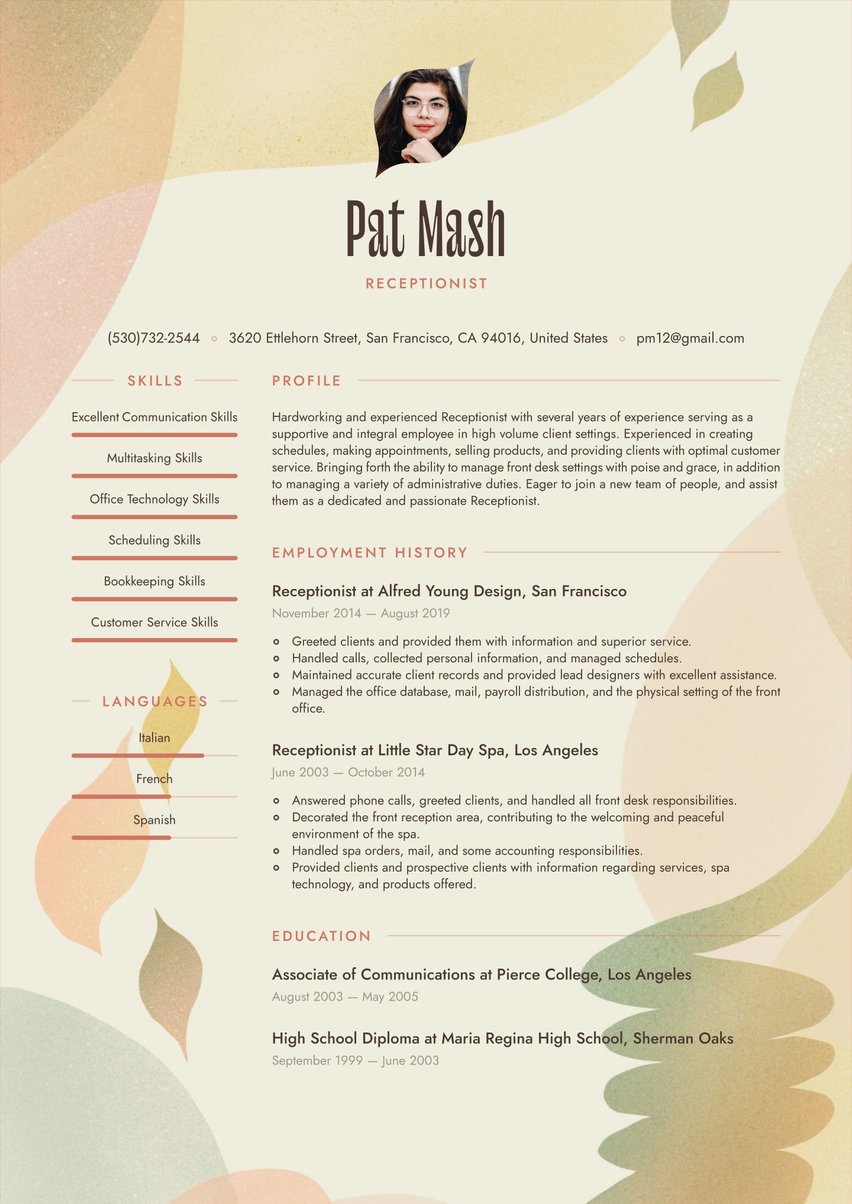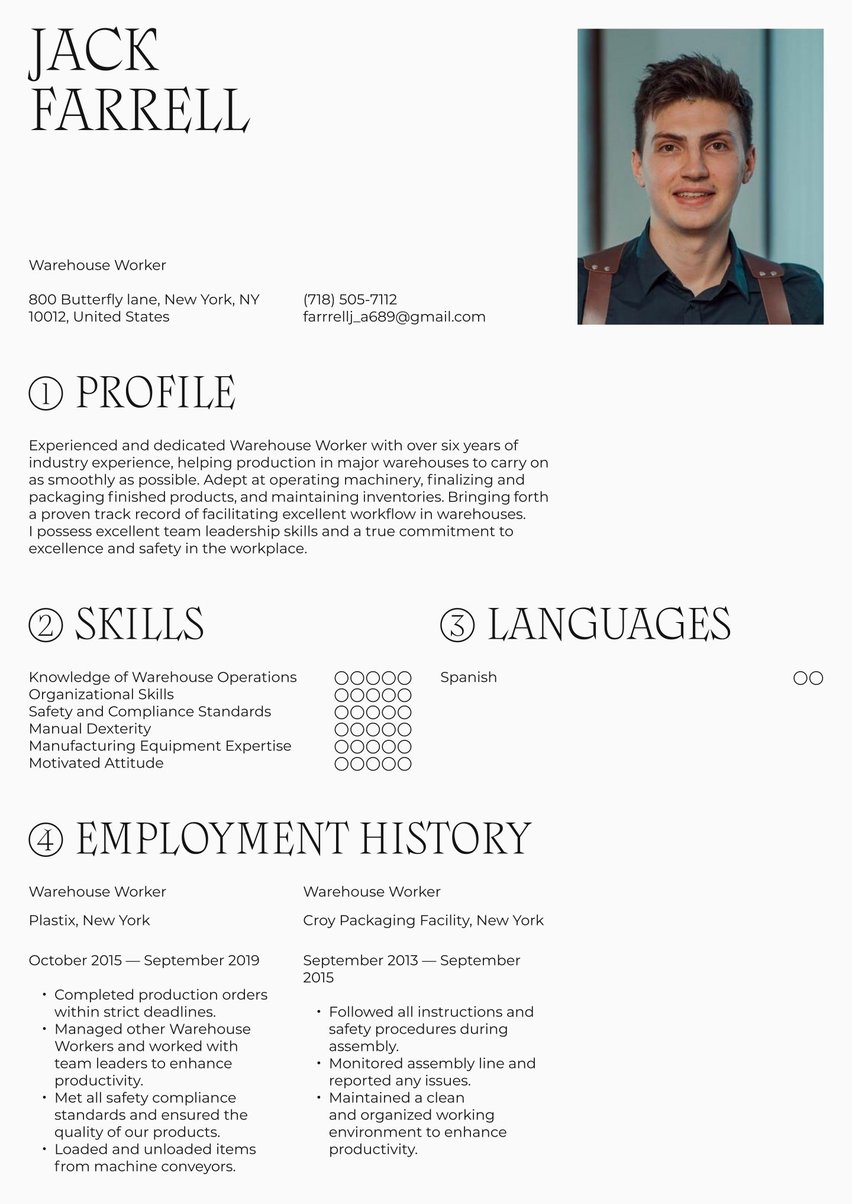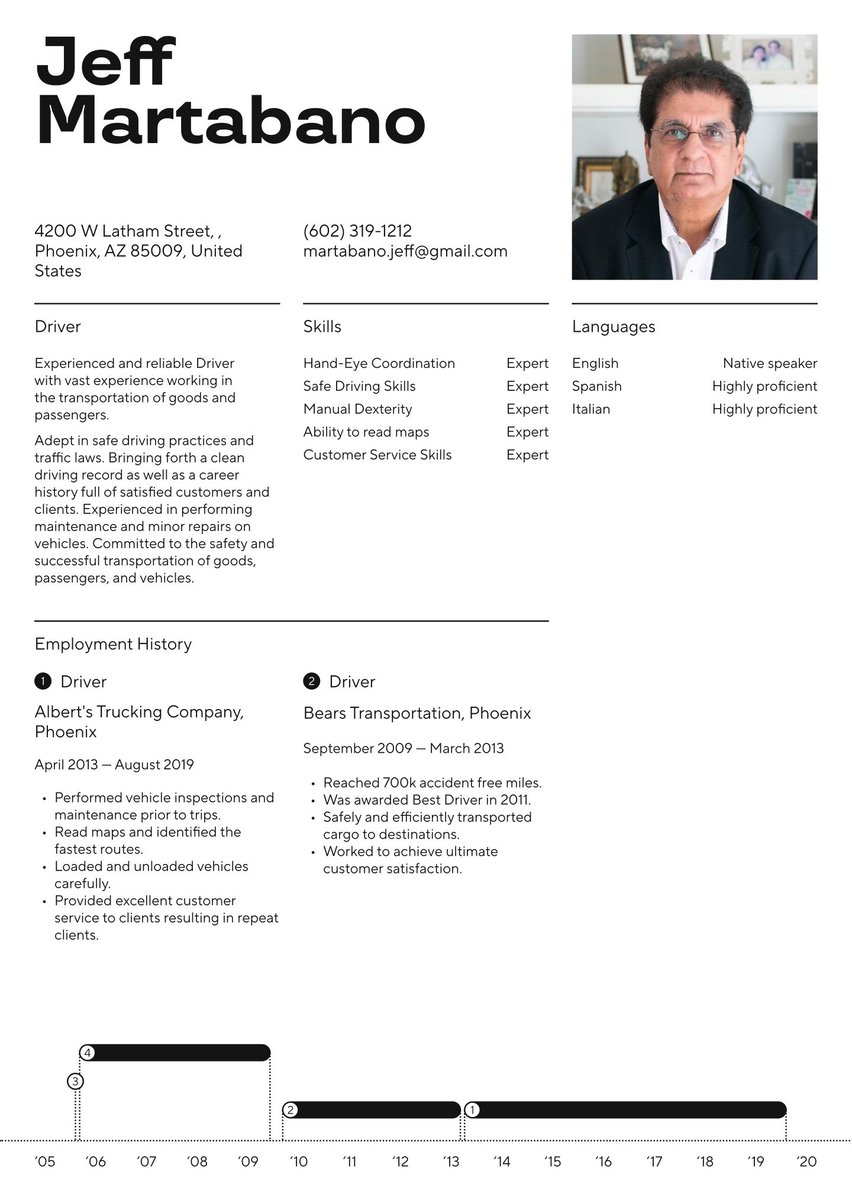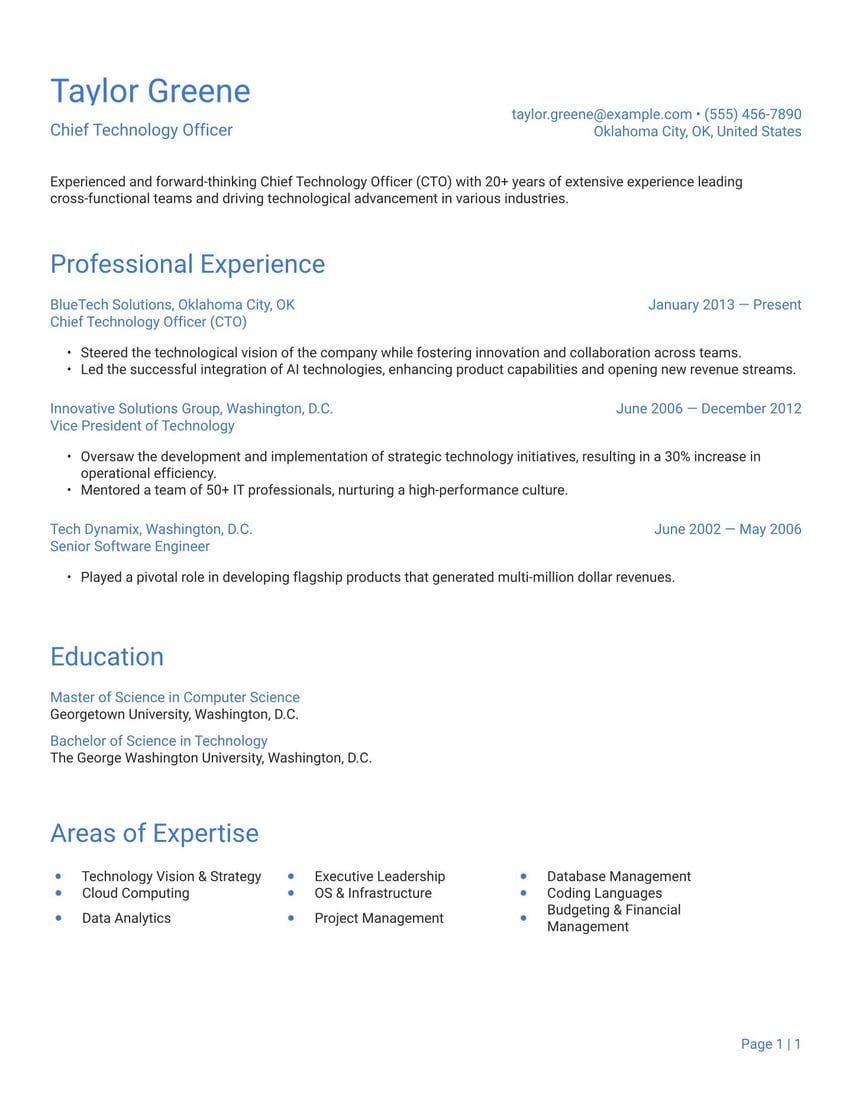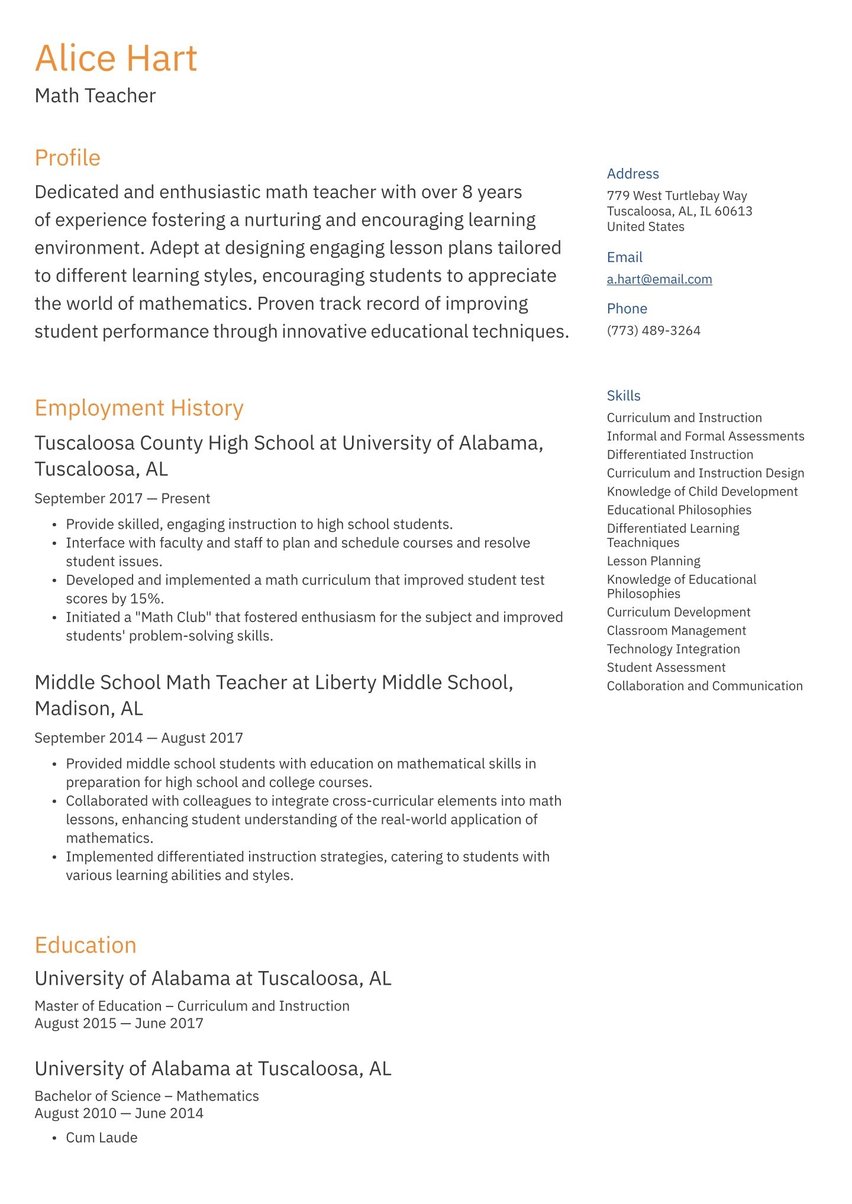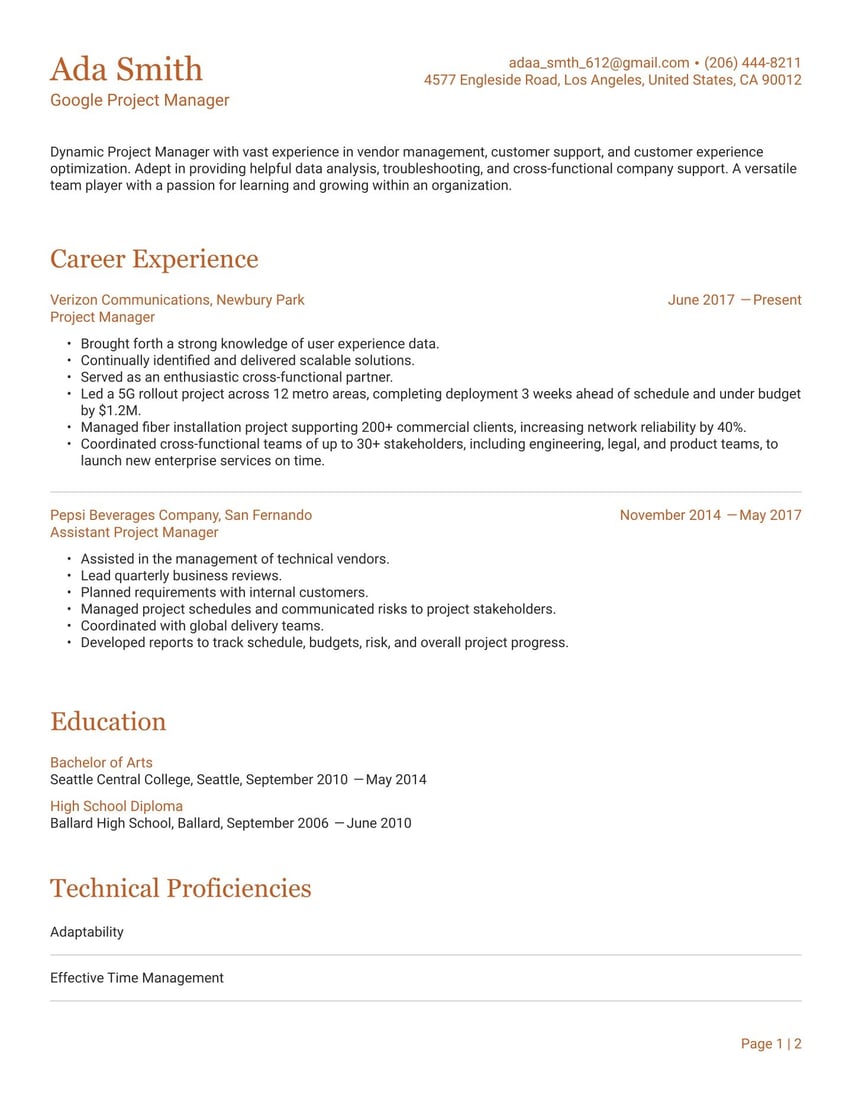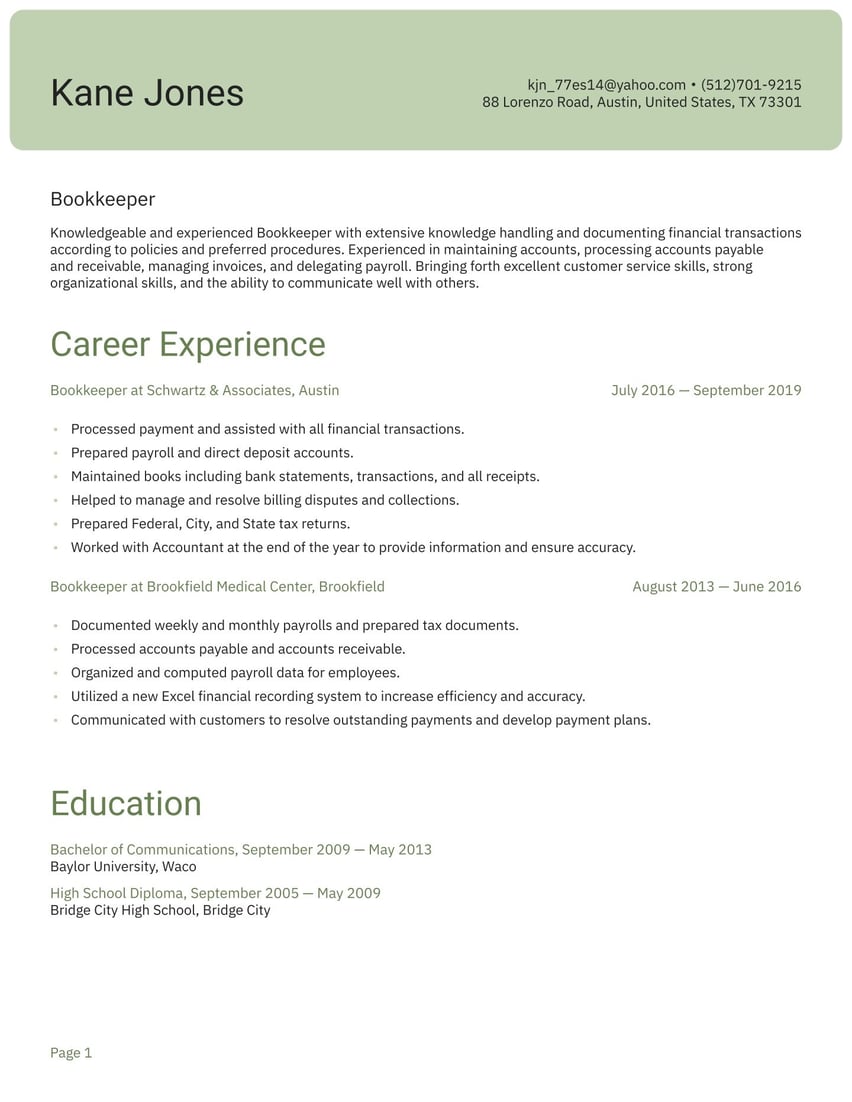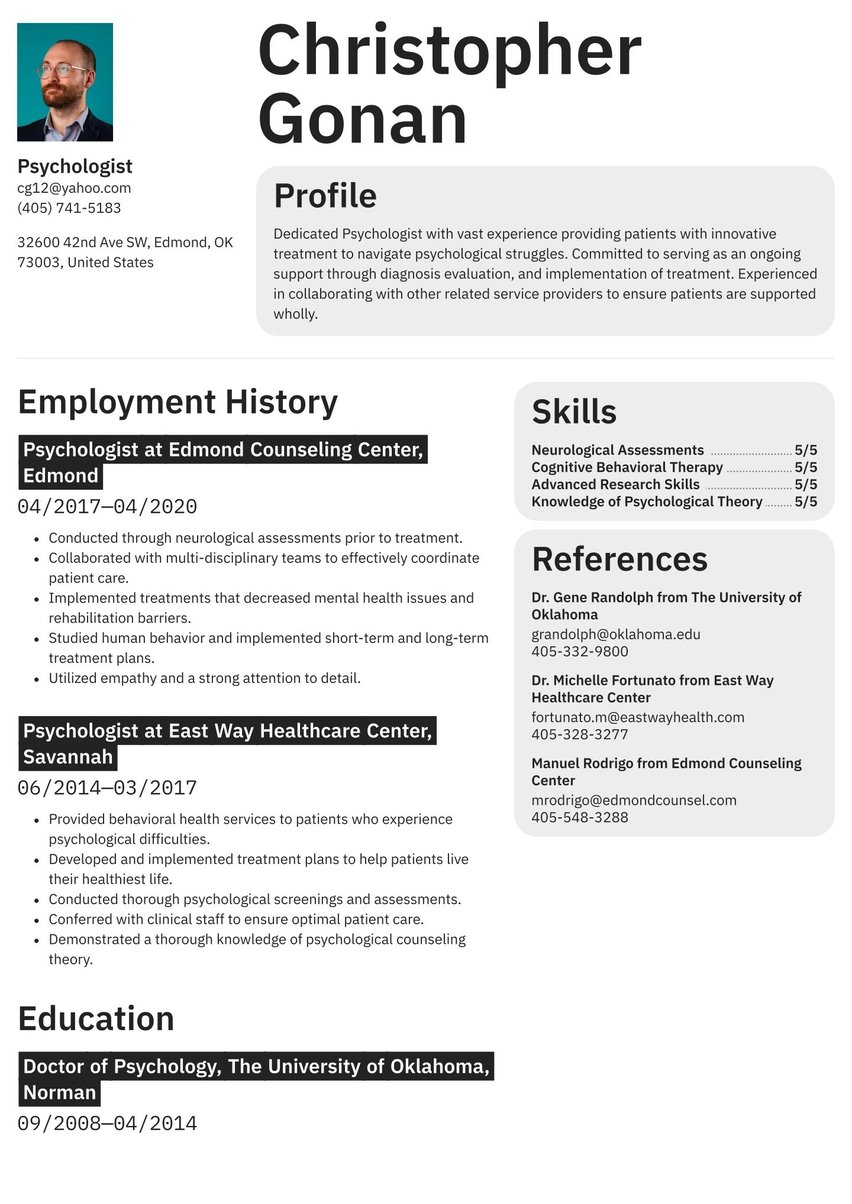Motivated and hardworking Entry Level Software Engineer ready to become a vital member of the next team I join. Working with a strong understanding of data structures and algorithms and complex problem solving skills.
07/2018 - present, Entry Level Software Engineer, Raytex, Charleston
- Collaborate with 10 team members to take ownership of the full development cycle.
- Partner with clients and developers to design, build, and roll out solutions.
- Utilize frameworks and languages like Java, JavaScript, and HTML to develop new applications and modify 25 existing applications.
- Work with project teams to successfully deliver new or modified functionalities.
- Recently helped to decrease software testing time by 20%.
- Attend all meetings with the software development team and senior leadership to discuss design strategy and delivery goals.
- Work tirelessly to develop features that help organizations be more effective and productive in their communication.
09/2014 - 05/2018, Bachelor of Science in Software Engineering, University of South Carolina, Columbia, SC
- Graduated summa cum laude.
- English
- Spanish
- Italian
- Database Management
- Python
- Java
- SQL
- Complex Problem Solving
- Creative Thinking
You’re a newly minted software engineer eager to begin your career. You know getting the right start can make all the difference. The first step is an entry-level software engineer resume that touts your skills and tells hiring managers why they should give you a chance.
Entry-level Software Engineer resume examples by experience level
While your skills may be in demand, you still have to impress before anyone meets you. Your first goal is to get that interview by creating an excellent application package. Resume.io’s wealth of resources for job hunters, including our resume examples, can help give you that boost.
Within this resume guide and the corresponding entry-level software engineer resume example, you will find information on the following topics:
- What does an entry-level software engineer do?
- The structure for writing an entry-level software engineer resume plus tips and tricks
- The best format for an entry-level software engineer resume
- Tips for developing the summary, employment history, education, and skills sections
- Professional layout and design hints
What does an entry-level software engineer do?
Entry-level software engineers work closely with more experienced professionals to create applications and programs. In addition to development, they test and update these products. At the beginning of their careers, software engineers, also called junior engineers, spend time familiarizing themselves with the program code.
Routine tasks fall to entry-level software engineers. These tasks include helping to upgrade software and applications, writing code documentation, and debugging existing programs and applications.
Entry-level software engineers may also be asked to choose a specialization. They include:
- Back end
- Front end
- Operations
- QA or testing
- Full stack
Entry-level software engineer job market and outlook
Overall, the market for software engineers, quality assurance analysts, and testers is booming, with expected growth of 22 percent by 2030, according to the U.S. Bureau of Labor Statistics. As more senior engineers explore their options, entry-level software engineers will have more opportunities.
Recent graduates of computer science programs who enter the software engineering field can expect to earn between $68,401 and $82,133, data from Salary.com shows, but those numbers grow rapidly. The median salary for all software engineers is $121,290, with the top end earning almost $175,000.
How to write an entry-level software engineer resume
Your entry-level software engineer resume will be uniquely yours but should contain standard elements. Standardization allows recruiters to find the information they seek quickly and easily.
Your CV needs the following sections:
- The resume header
- The resume summary (aka profile or personal statement)
- The employment history section
- The resume skills section
- The education section
Choosing the best resume format for an entry-level software engineer
The differentiating factor in your entry-level software engineer resume is the content, not the resume format itself. Most often, you are best off using the reverse chronological order standard format just as you use standard sections and for the same reason.
You may be an exception because you are looking for your first job in the field. If you have any experience as a software engineer or in another relevant field, we recommend sticking with this format; however, you may want to play up your education and certifications by moving them above your experience section.
If you have a long list of programming languages or other expertise, consider a hybrid or functional format that allows for an expanded skills section.
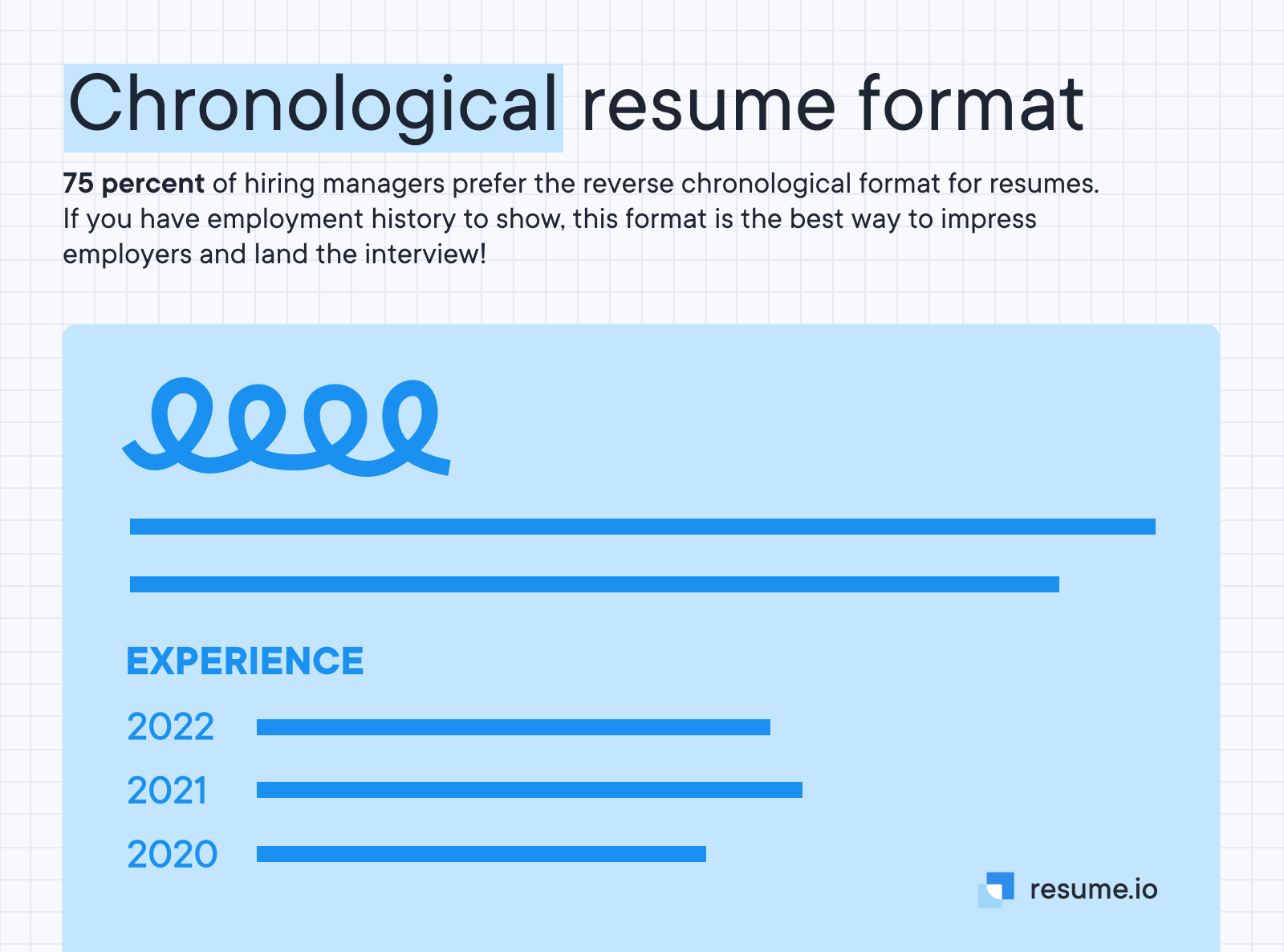
Resume summary example
The summary paragraph of your entry-level software engineer resume is particularly important because you don’t have the experience to help you stand out. It is here that you need to convince recruiters that you would be a valuable addition to the team.
Open with a sentence that describes yourself as a professional. Do you have an area of expertise or special interest? Let your prospective employer know. Follow that up with a sentence on why you want this particular job and what you will bring to the company.
Consider mentioning the company’s philosophy, culture, or products and explain why they are attractive to you.
If you’re searching for more inspiration, click over to other resume samples in our IT category. These include web developer resume example, software developer resume sample, programmer resume example, software engineer resume sample, and full stack developer resume example.
Motivated and hardworking Entry Level Software Engineer ready to become a vital member of the next team I join. Working with a strong understanding of data structures and algorithms and complex problem solving skills.
Employment history resume sample
As an entry-level software engineer, you may not think you have an employment history, but you probably do. If you worked in the summers or part-time while you were in school, that experience is valuable. It tells employers that you have the skills to be a good worker.
If you have related experience, great! But even if you don’t, jobs unrelated to software development show that you have time management, organizational, communication, and project management skills prized by employers.
Organize this section with your most recent experience first and work your way backward. The strongest employment history sections use bullet items that begin with an action word that describes what you’ve done and follow it up with the results you achieved. Details and data will add to your case.
Entry Level Software Engineer at Raytex, Charleston
Jul 2018 - Present
- Collaborate with 10 team members to take ownership of the full development cycle.
- Partner with clients and developers to design, build, and roll out solutions.
- Utilize frameworks and languages like Java, JavaScript, and HTML to develop new applications and modify 25 existing applications. Work with project teams to successfully deliver new or modified functionalities.
- Recently helped to decrease software testing time by 20%.
- Attend all meetings with the software development team and senior leadership to discuss design strategy and delivery goals.
- Work tirelessly to develop features that help organizations be more effective and productive in their communication.
Work the words
You know all about algorithms and their importance in parsing online data. When you apply for software jobs, you’ll most likely be doing so through an Applicant Tracking System (ATS) that scans your data and ranks your resume based on keywords and phrases. Analyze the job listing to ensure you’ve included the same words and phrases that appear there.
Instead of relying on your skills section alone, slip those keywords and phrases into your employment history section without interrupting the flow of your descriptions.
CV skills example
First and foremost, you must list the programming languages you know in your skills section. When recruiters scan an entry-level software engineer's resume, they want to know immediately if you have the foundation they need.
Unless you have chosen an expanded skills section, you will be limited to 5-7 abilities, so match them carefully to each job. Include both your programming abilities and the interpersonal and resiliency skills you have.
Below is a list of the best in-demand programming languages to learn, according to the jobs platform Turing.com.
- Python
- JavaScript
- PHP
- C++
- TypeScript
- Java
- Swift
- Kotlin
If you already know them, make sure your prospective employer knows that.
But don’t simply list programs in your skills sections. Employers are looking for your soft skills, especially at the beginning of your career. Here is a list of seven attributes the consulting firm Accenture, which employs more than 700,000 workers, looks for in entry-level employees:
- Flexibility and receptiveness to feedback
- Self-awareness
- Growth mindset
- Comfort with ambiguity
- Taking responsibility
- Networking
- Communication
Curate your skills section to include both types of attributes, making sure that you consult the job listing to choose the most relevant.
More information is better
When you develop this section, consider adding a measure of your skill level in each area. This is your first software development job and recruiters know you’re not an expert at everything. Be honest, but avoid listing a skill in which you have only novice knowledge unless it is a job requirement.
- Database Management
- Python
- Java
- SQL
- Complex Problem Solving
- Creative Thinking
Entry-level software engineer resume education example
It is likely that, as an entry-level software engineer, you have recently completed your bachelor’s degree in computer science or a related field. Congratulations! Your education section is a simple listing of this degree or any others you have earned. If you have a master’s degree, there’s no need to include your high school experience. Instead, list any certifications you have. If you have the space, you may also choose to include any individual classes that taught you desirable skills.
Only include your GPA if you are a recent graduate and it is 3.5 or above.
University of South Carolina Bachelor of Science in Software Engineering, Columbia, SC
Sep 2014 - May 2018
- Graduated summa cum laude.
Resume layout and design
Before a recruiter reads your entry-level software engineer resume, they will assess the way it looks. This quick judgment may not even be conscious, but it counts. That’s why you need to pay careful consideration to the design of your document as well as the content.
If you’d rather spend your time crafting your content, Resume.io offers dozens of expertly-designed resume and corresponding cover letter templates for you to choose from and personalize.
Here are some pointers to maximize the impact of your layout:
- Legibility comes before creativity. If a recruiter can’t read your fonts easily or find relevant information, they will be on to the next candidate.
- Save the graphics for your portfolio. Too much art will detract from your content. Instead, link to your portfolio directly from your resume document using a resume-builder such as ours.
- Prominently display your contact information. List the best methods for reaching you quickly, including a professional-sounding email address, not the funny one you made up for your college friends.
- Leave ample margins and white space. It’s tempting to cram in a lot of information, but big blocks of type are off-putting.
Key takeaways for an entry-level software engineer
- You chose an in-demand career that is expected to continue to grow, so a great resume should get you the job you desire.
- Employers hiring for entry-level positions emphasize soft skills as well as your programming knowledge.
- You have more experience than you think. Don’t neglect your summer or part-time jobs when you compile your employment history.
- Take advantage of Resume.io’s resources to get your job search moving today!

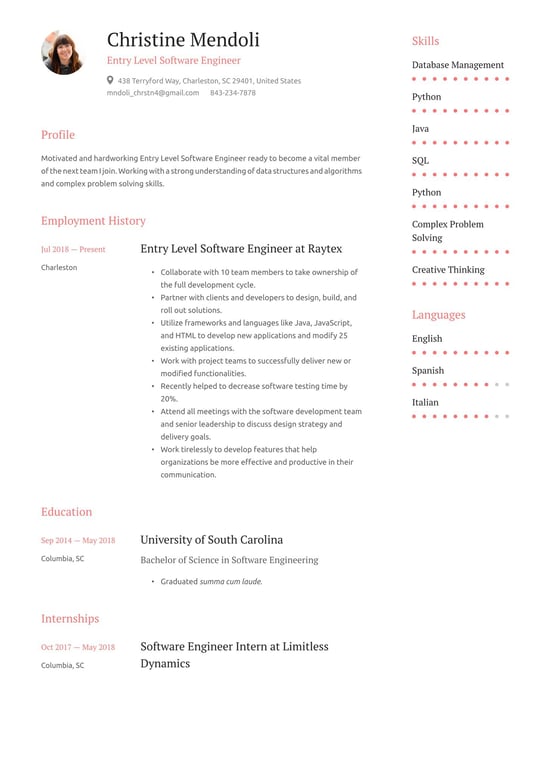
.jpg)

.jpg)















